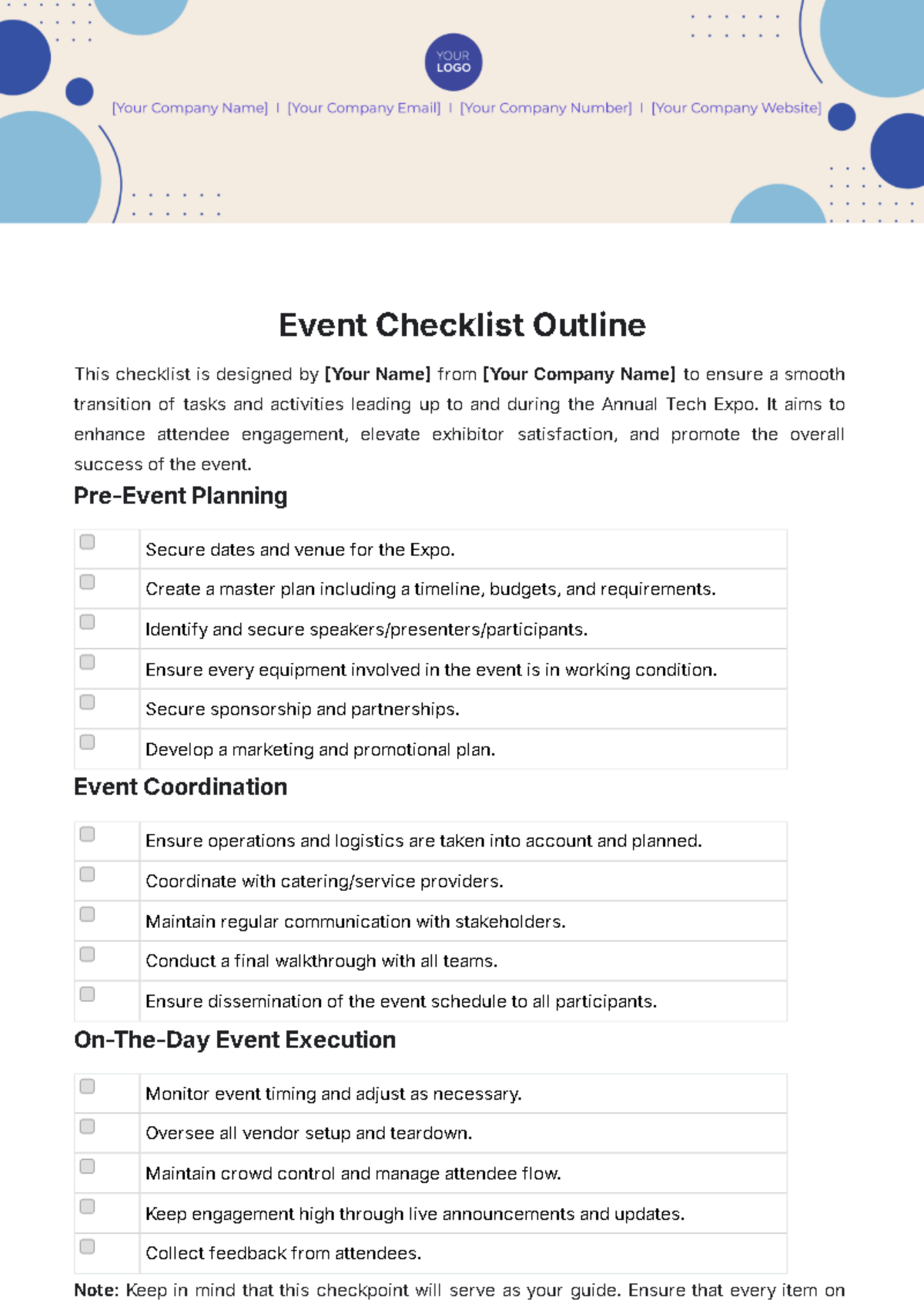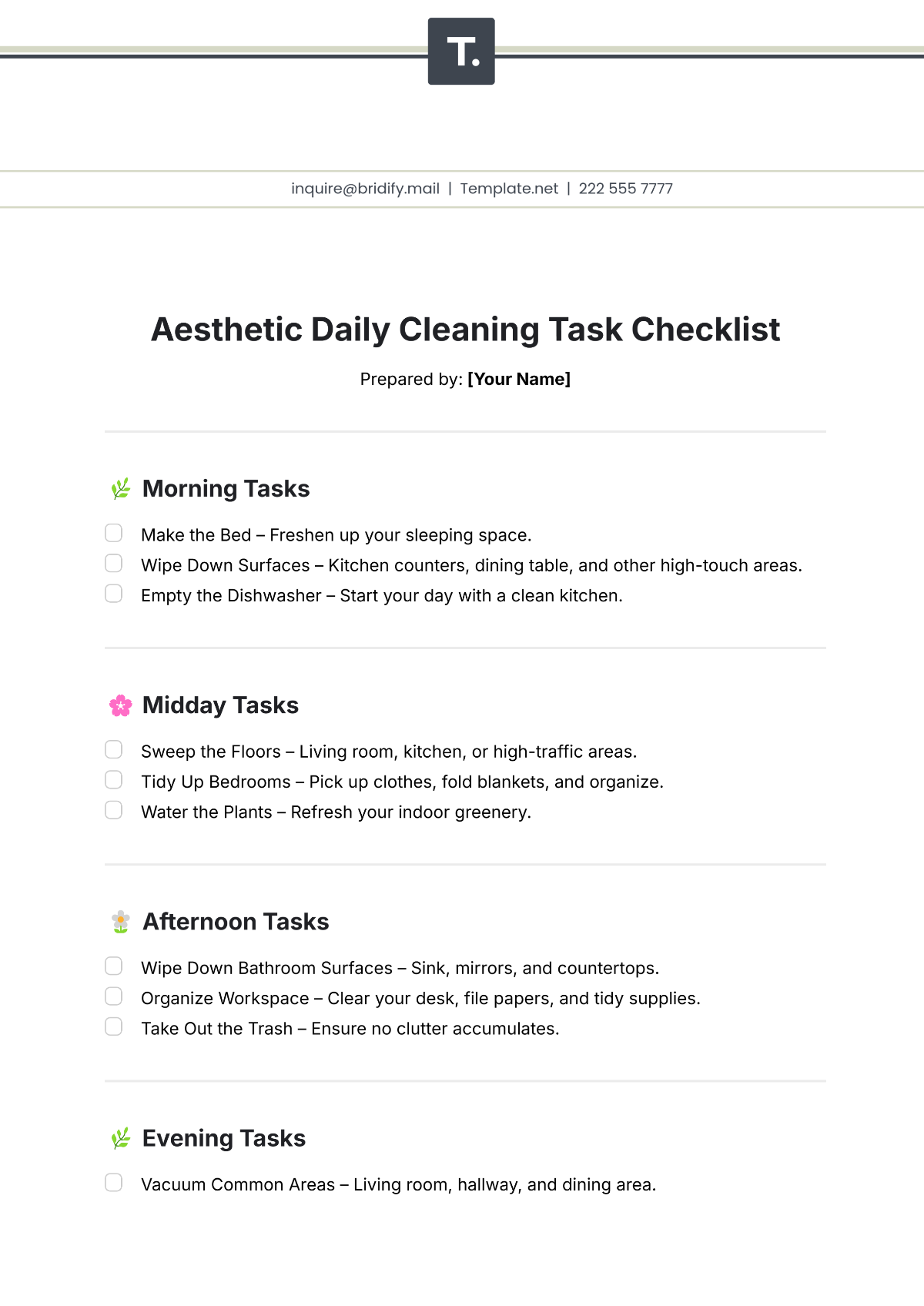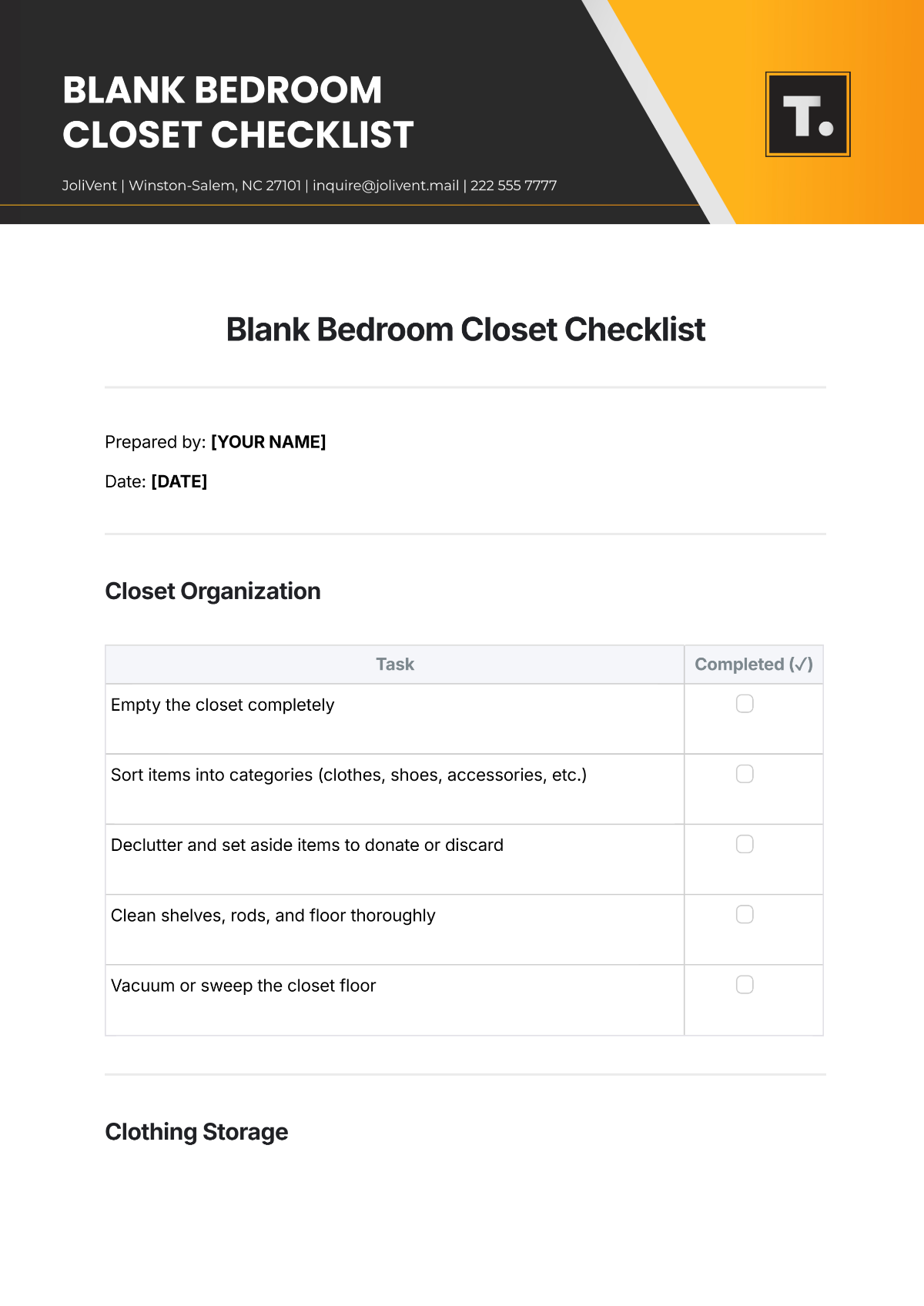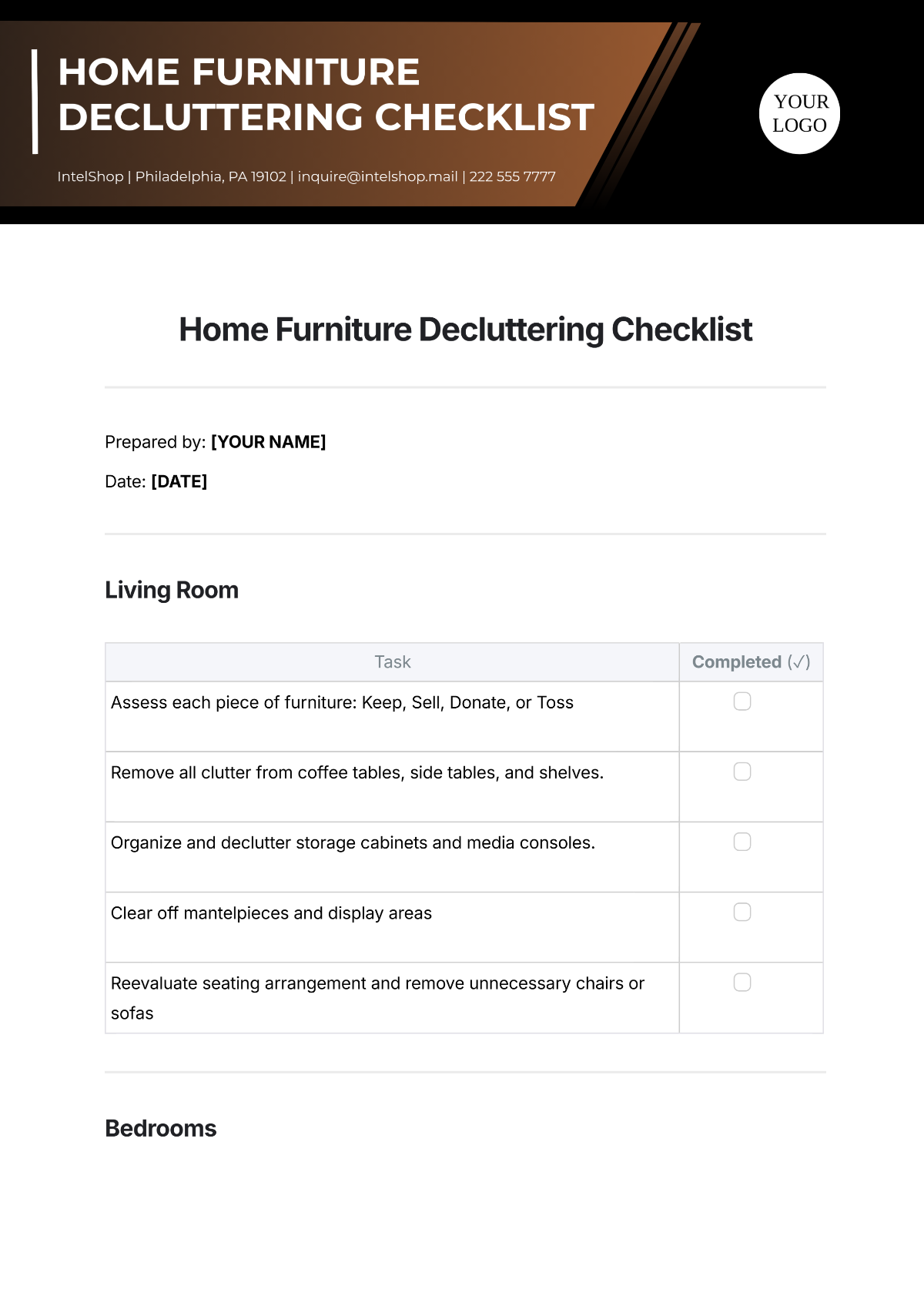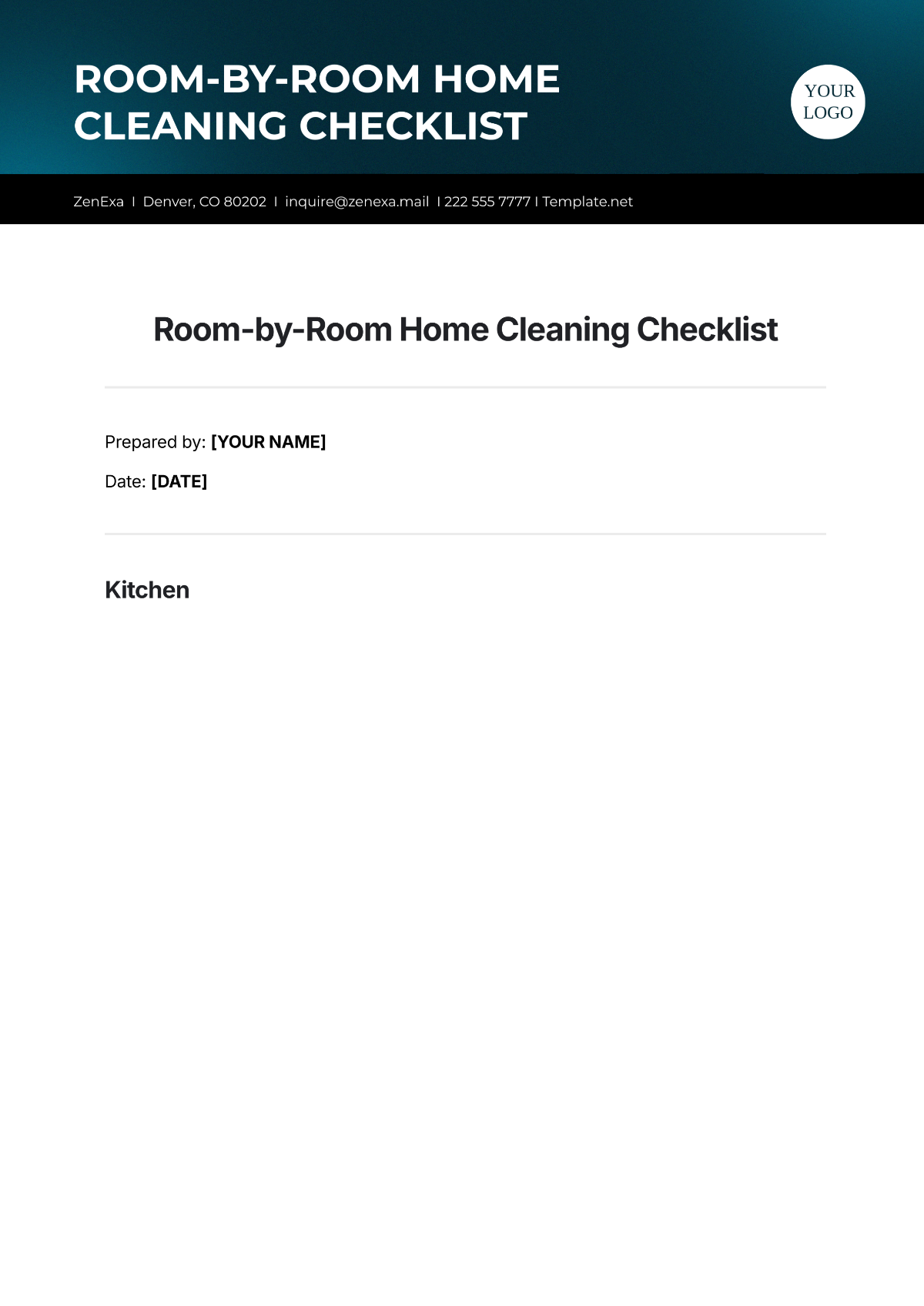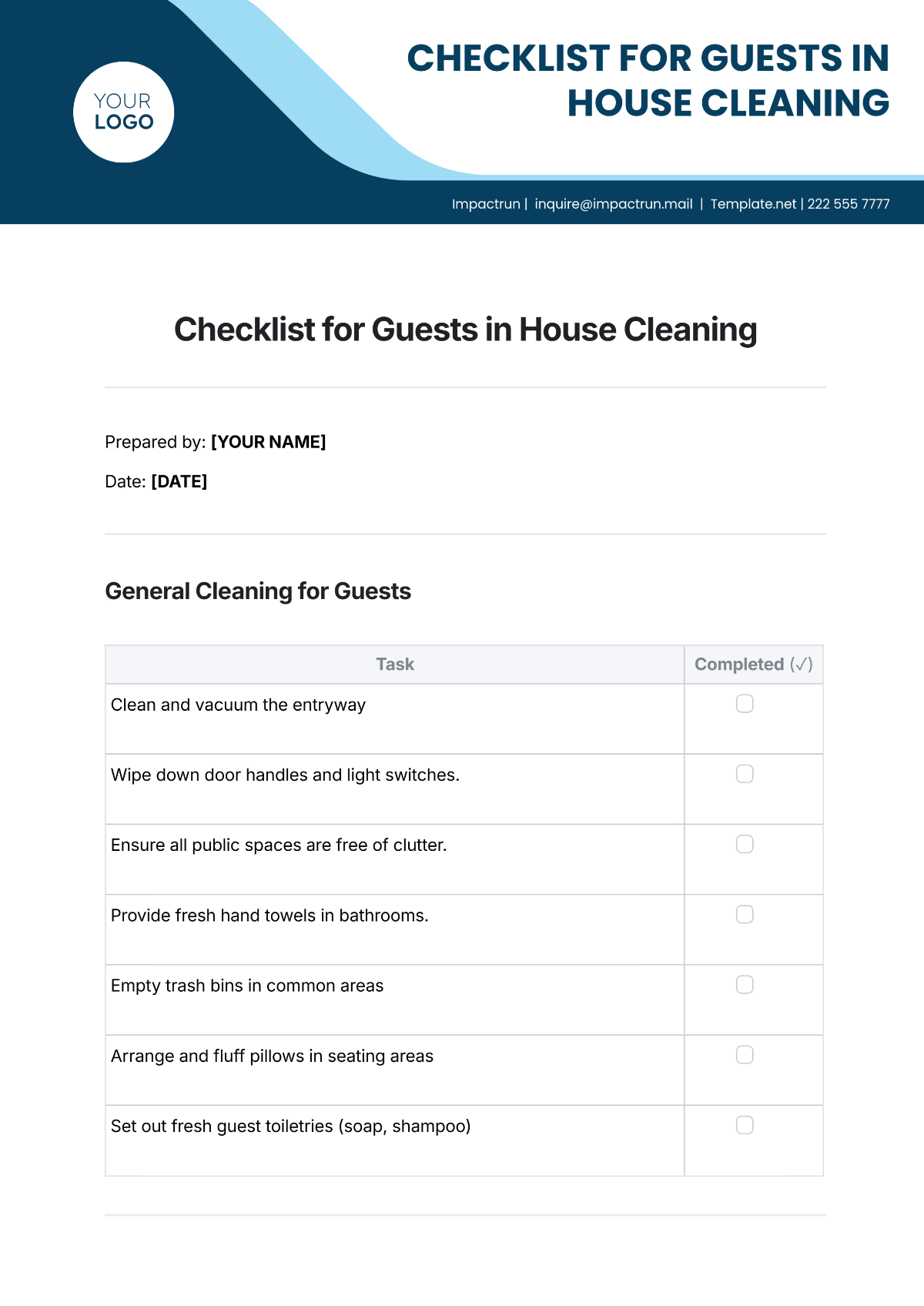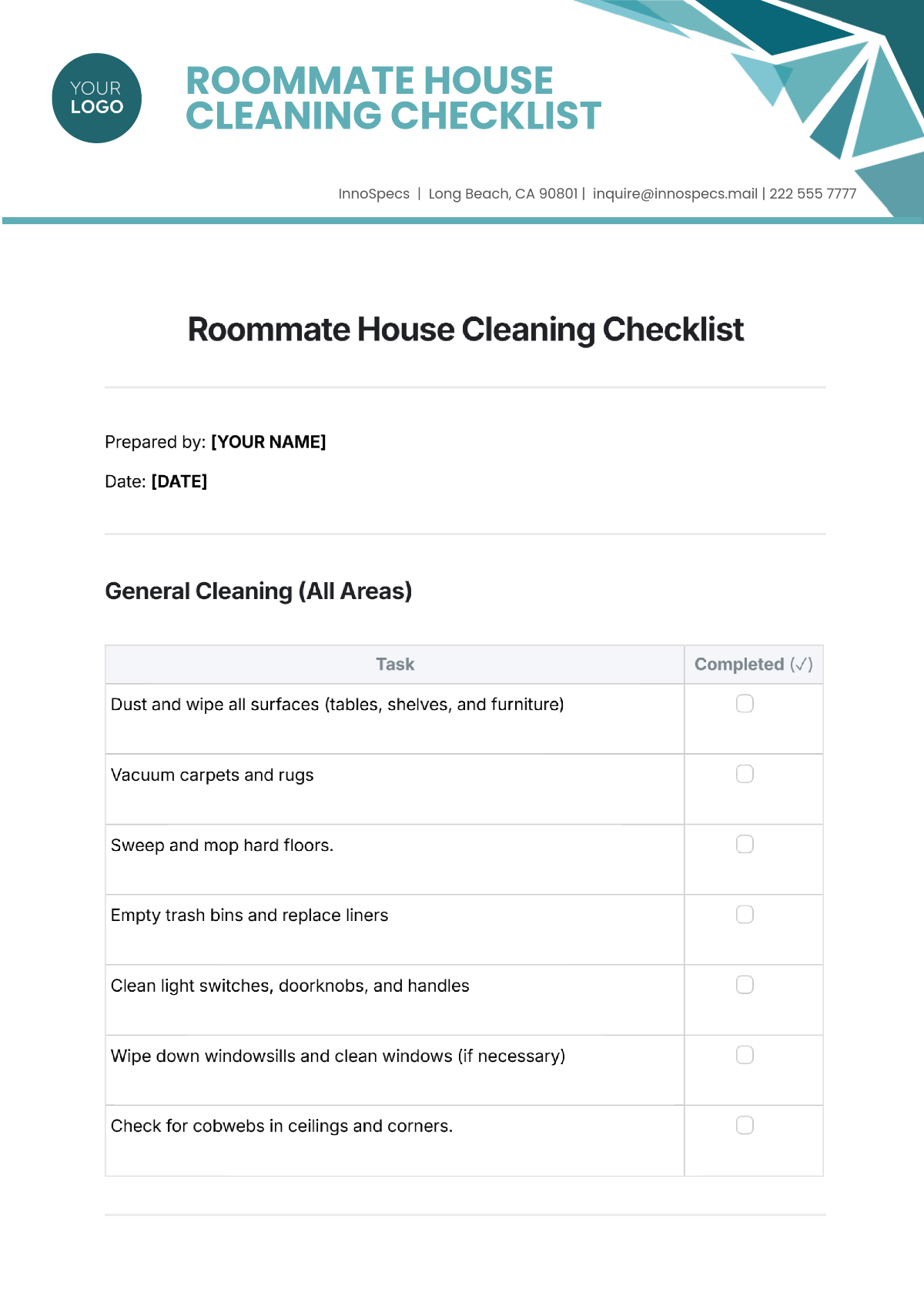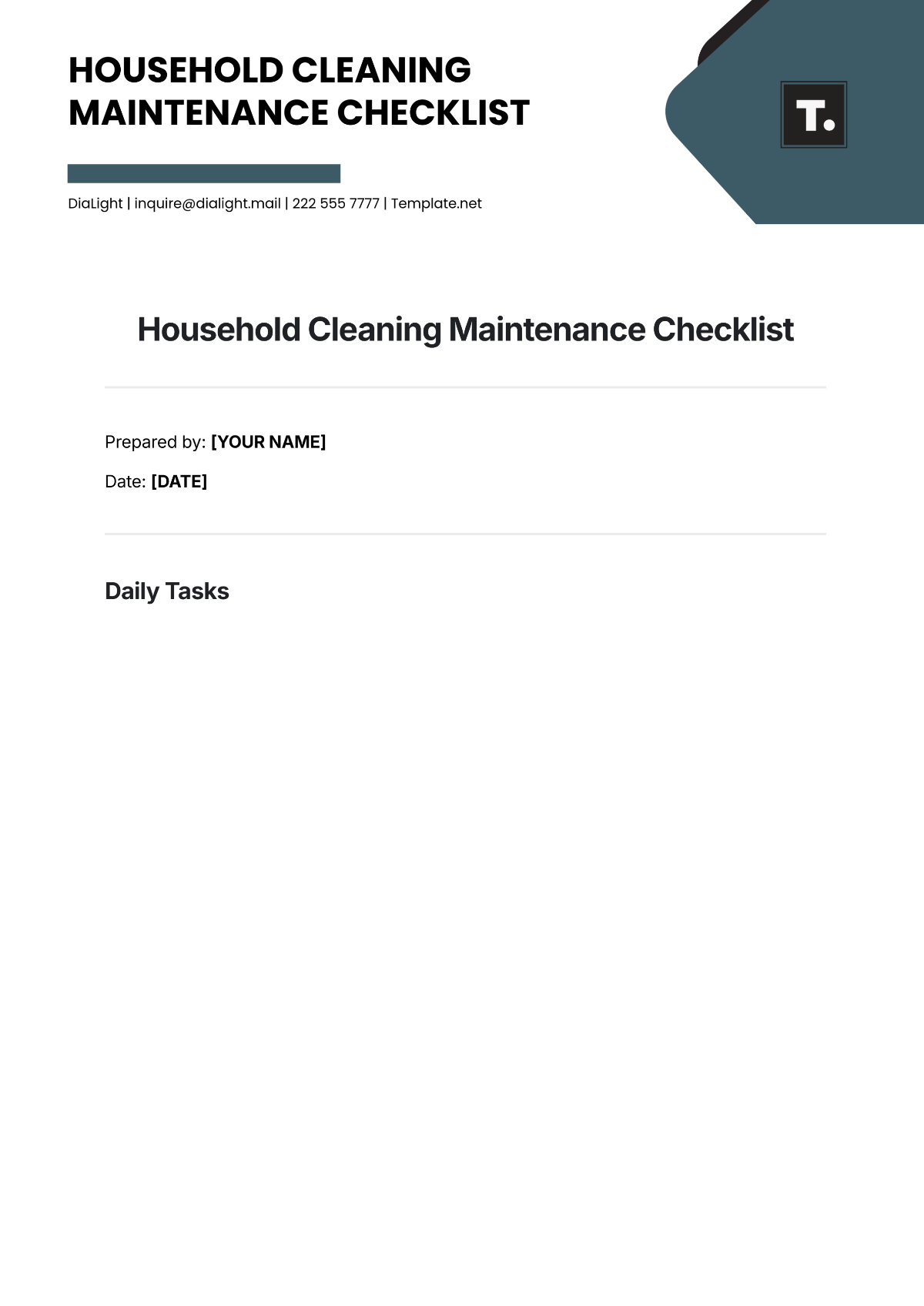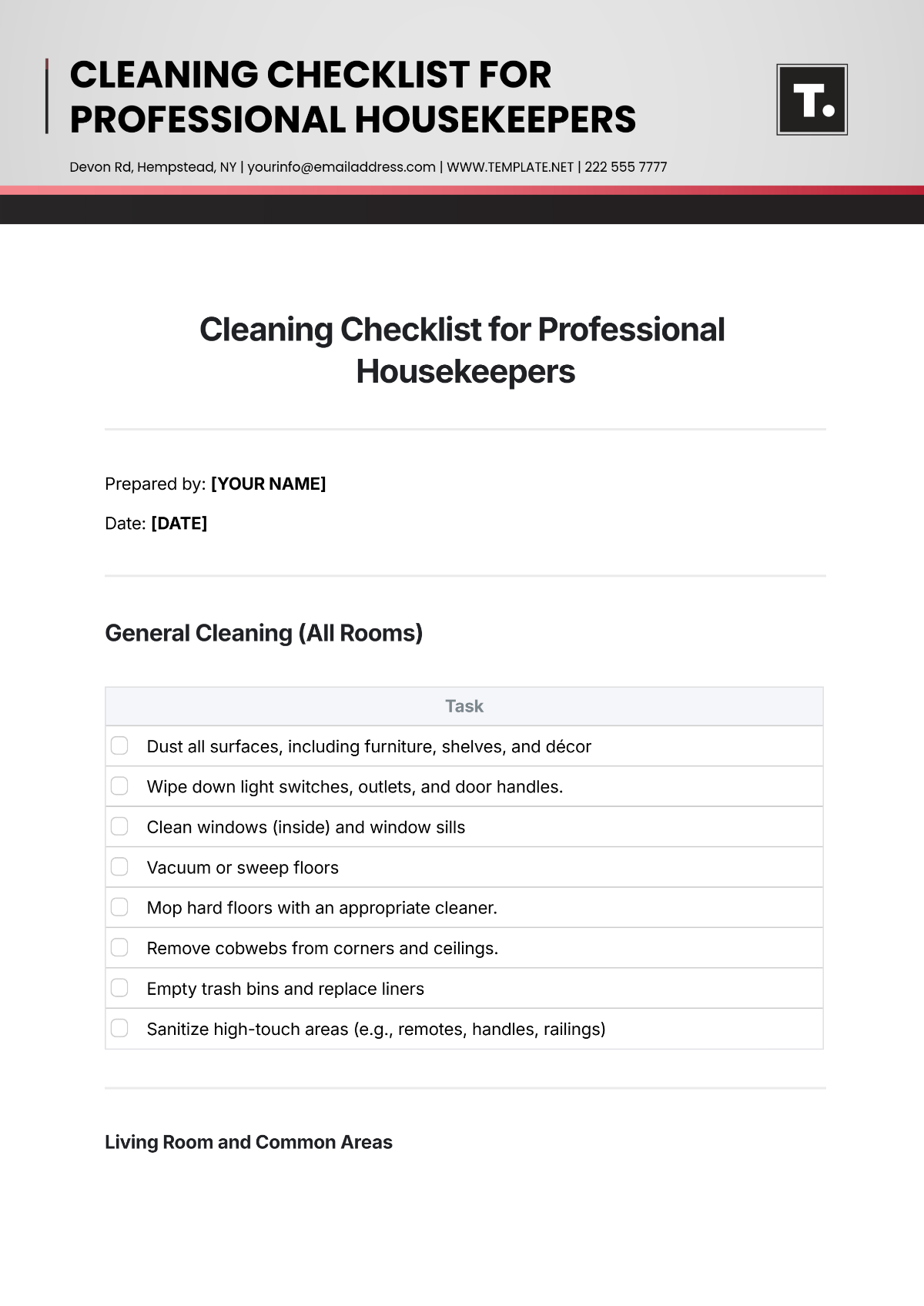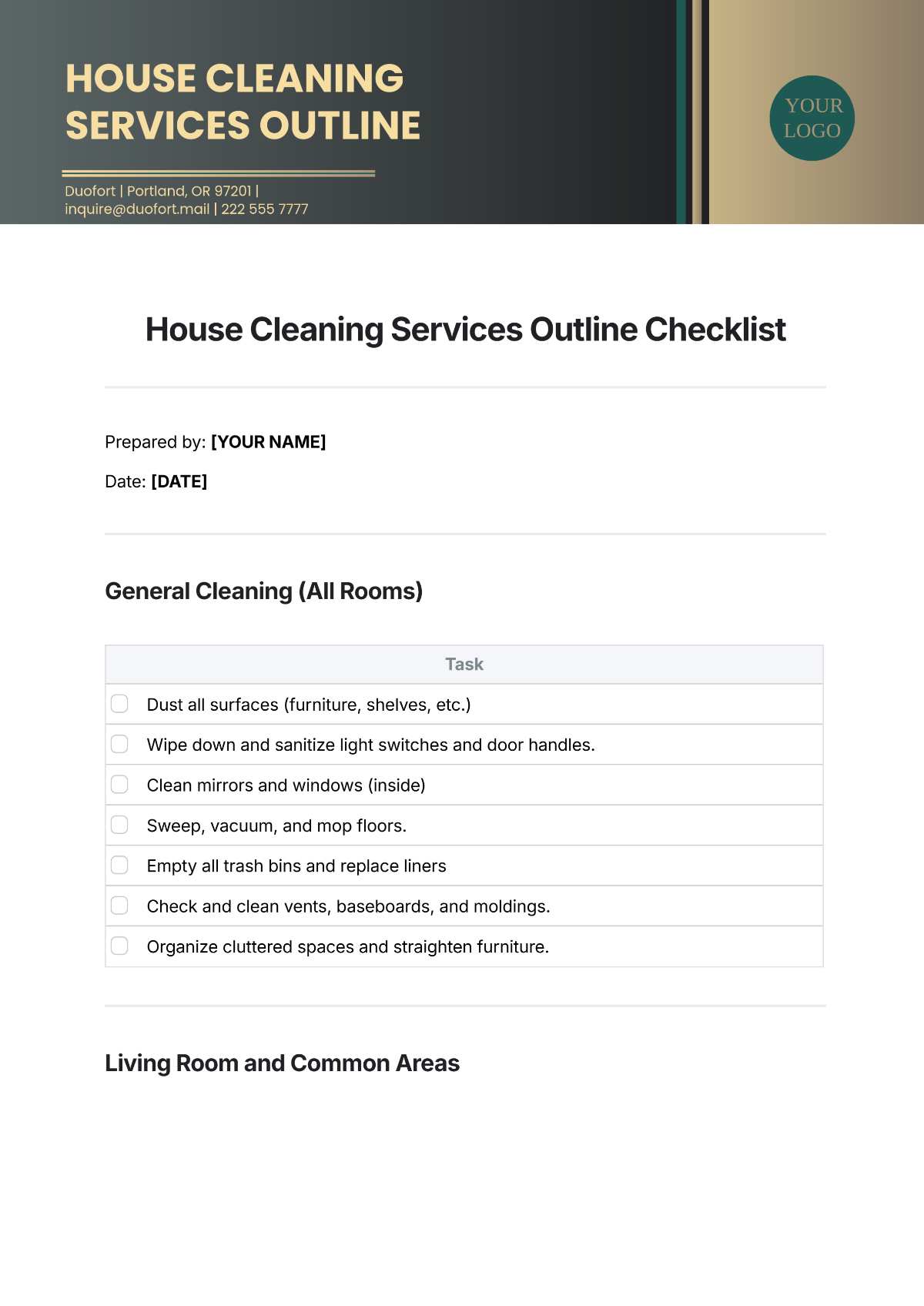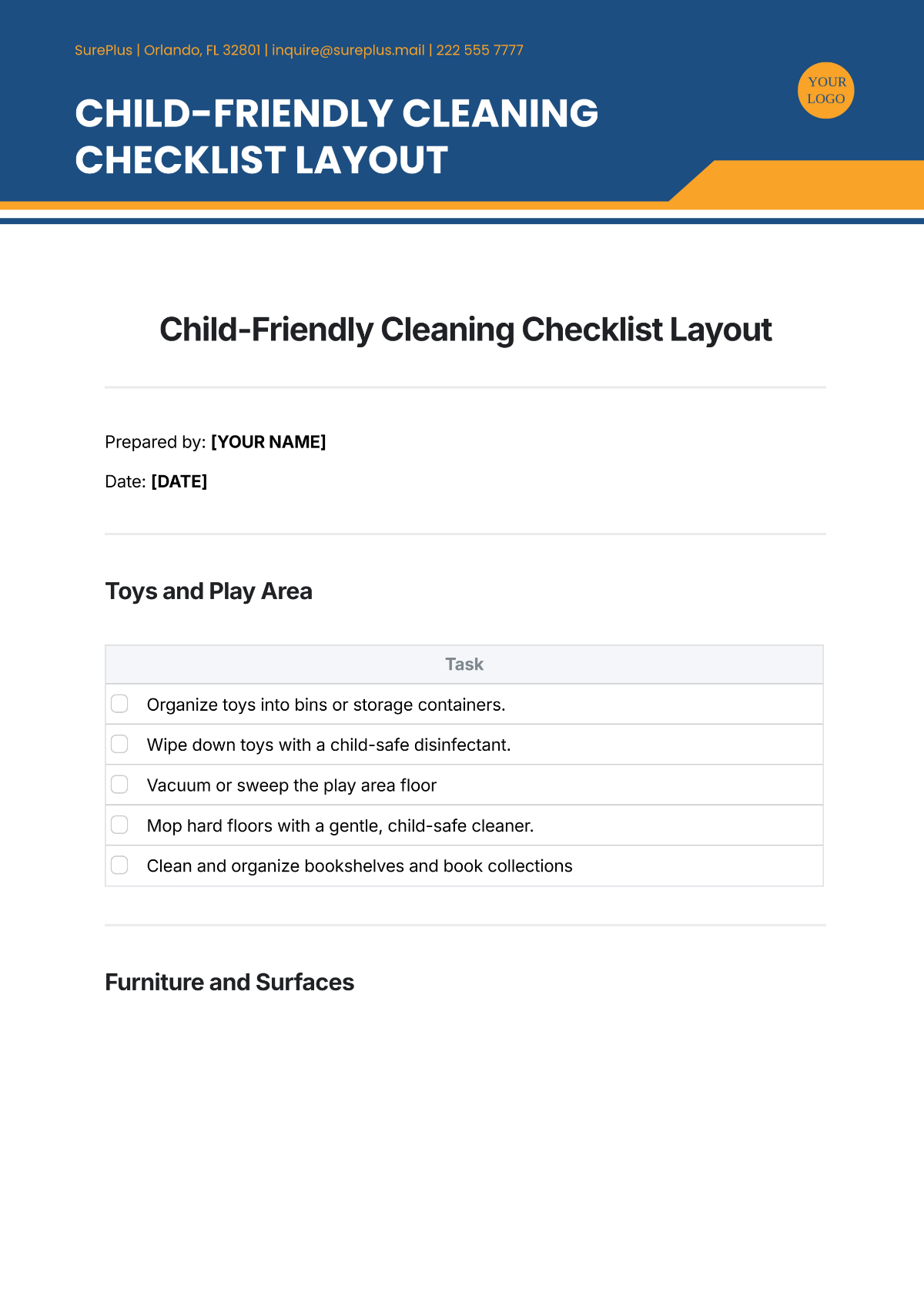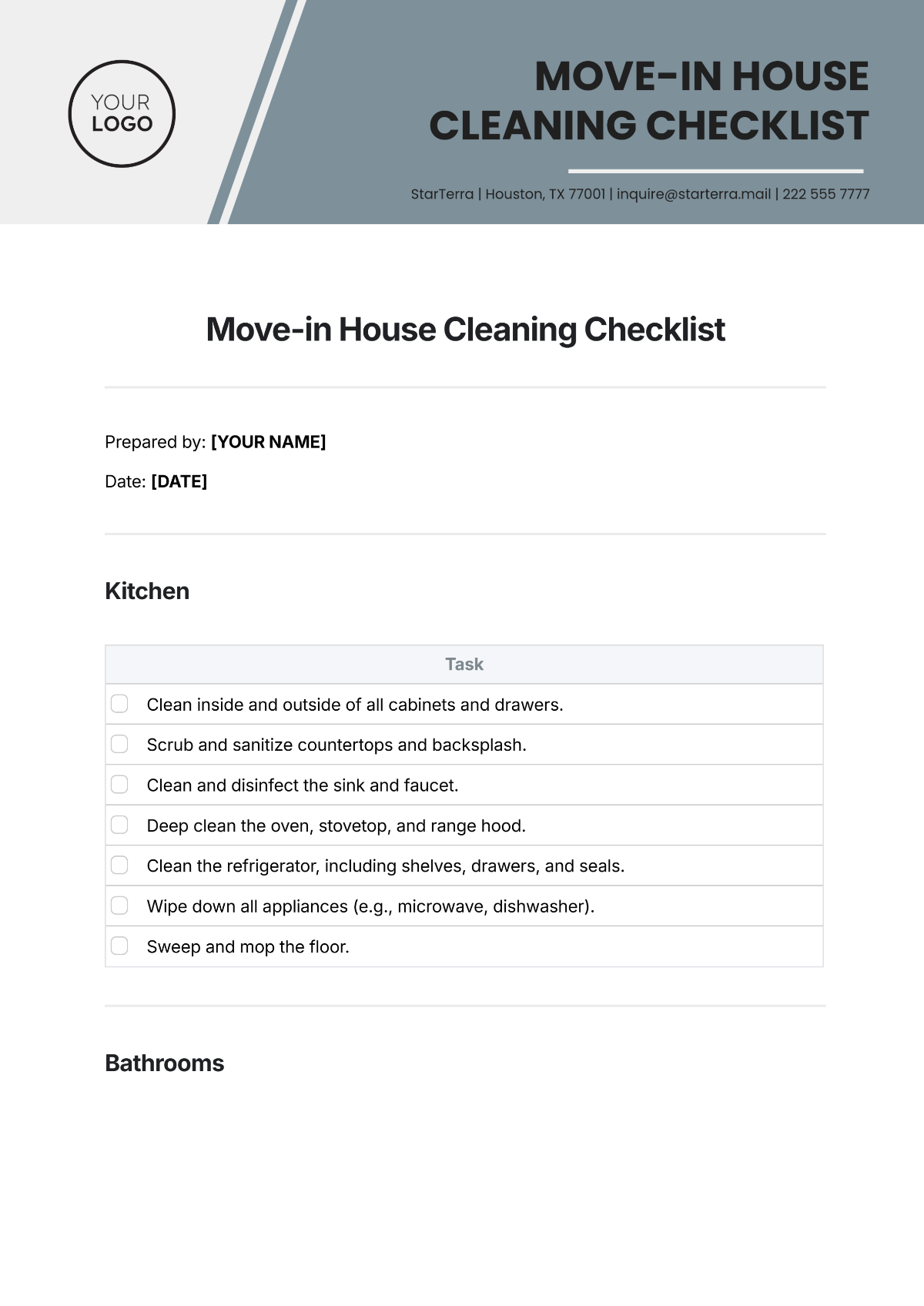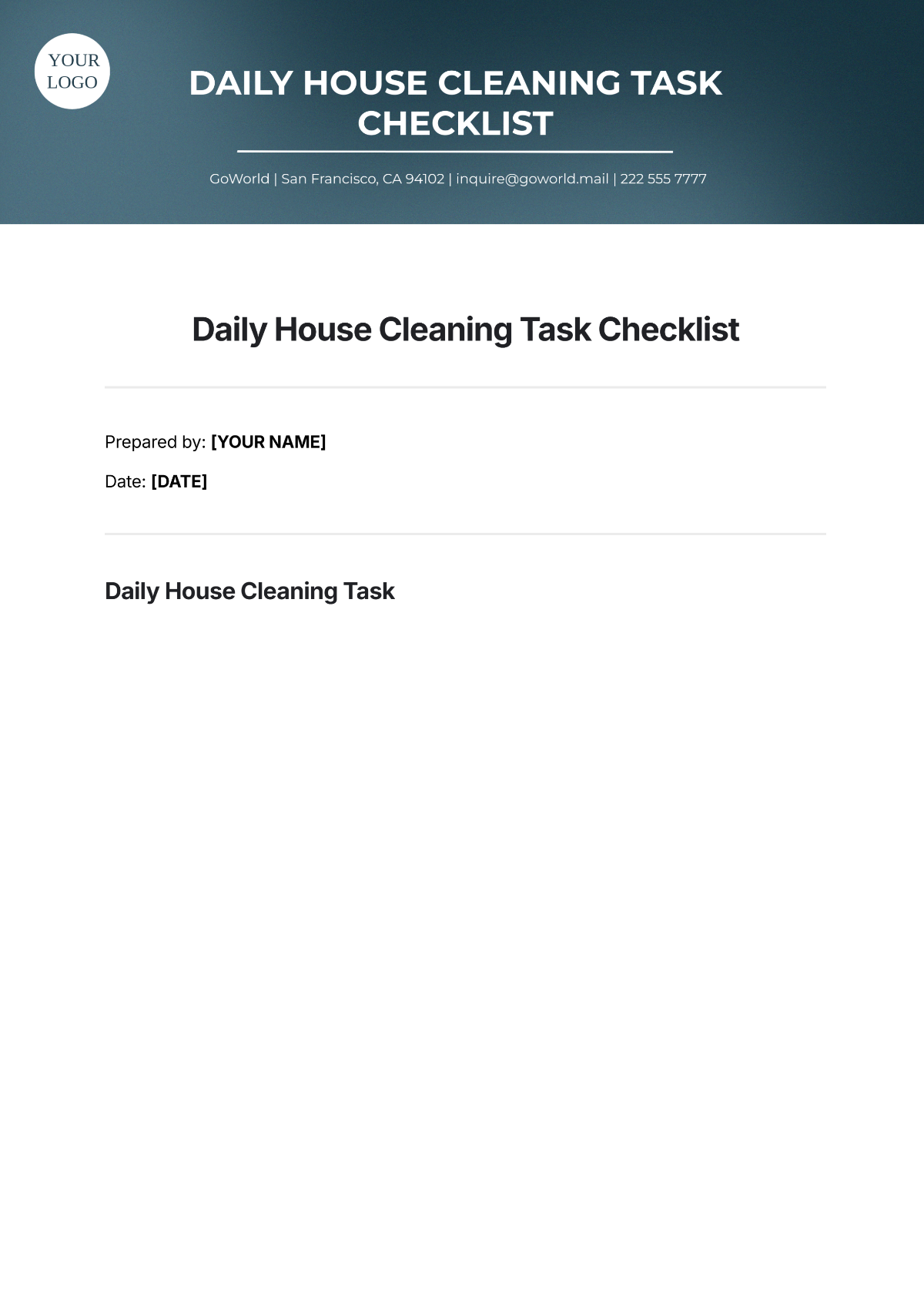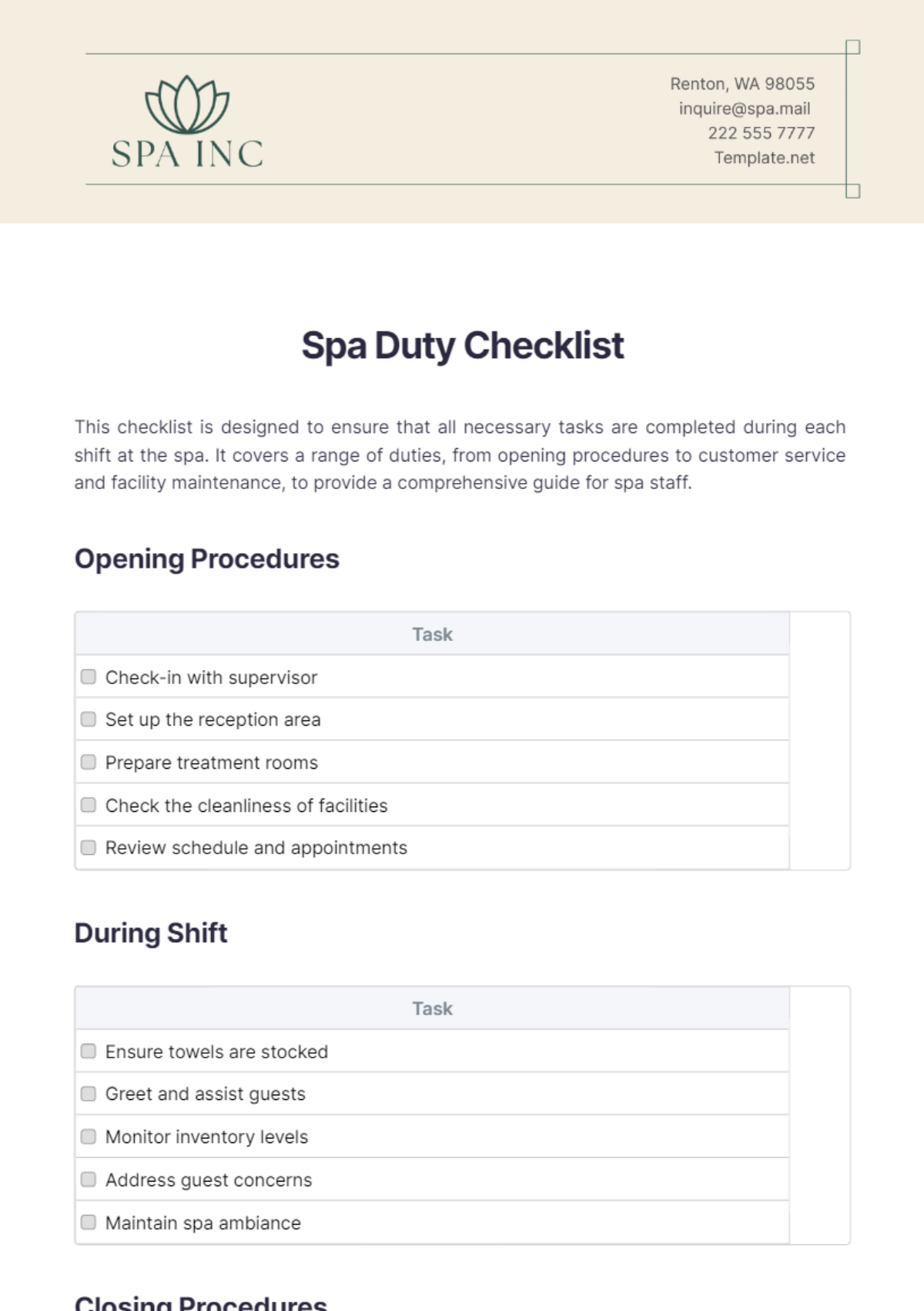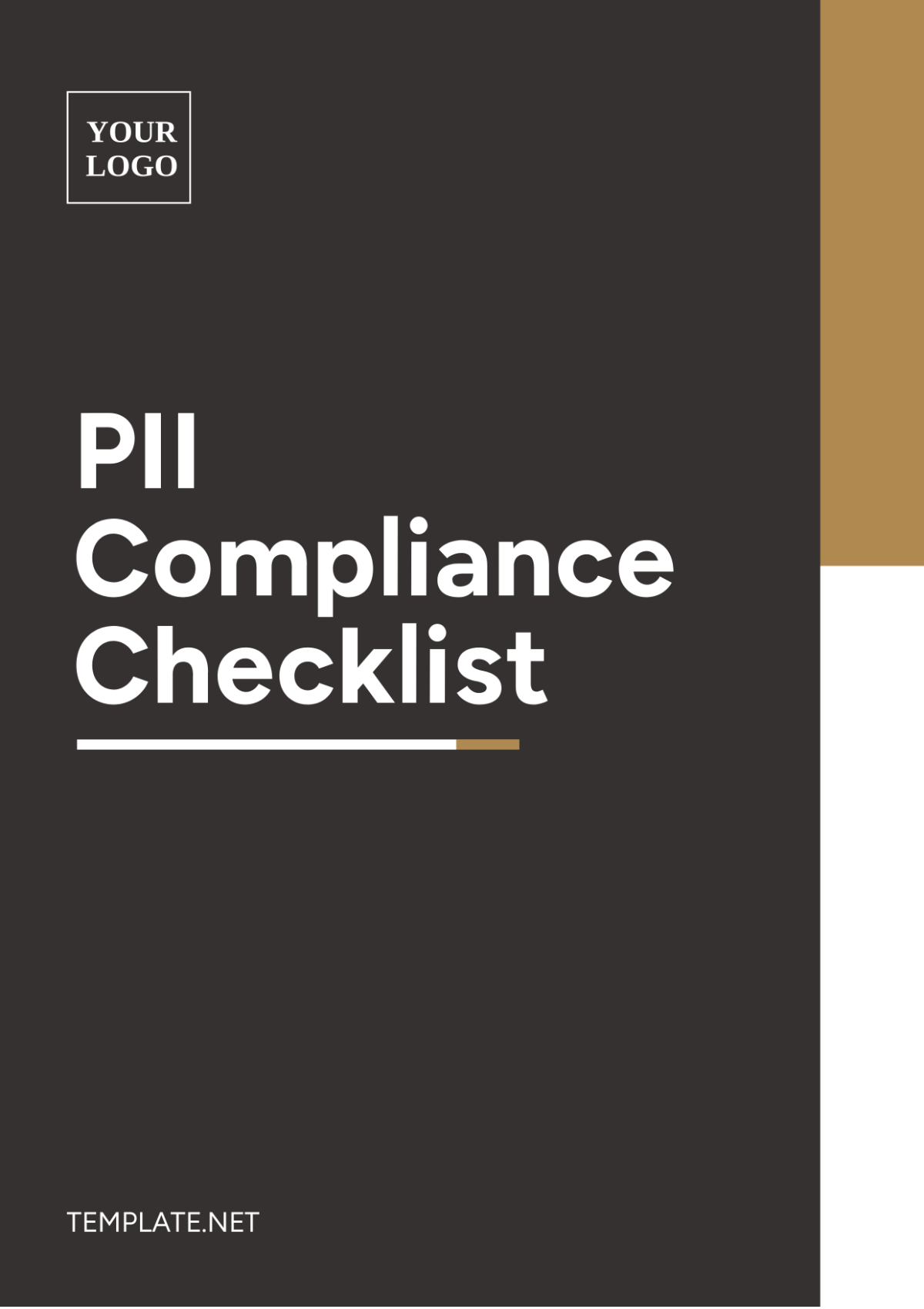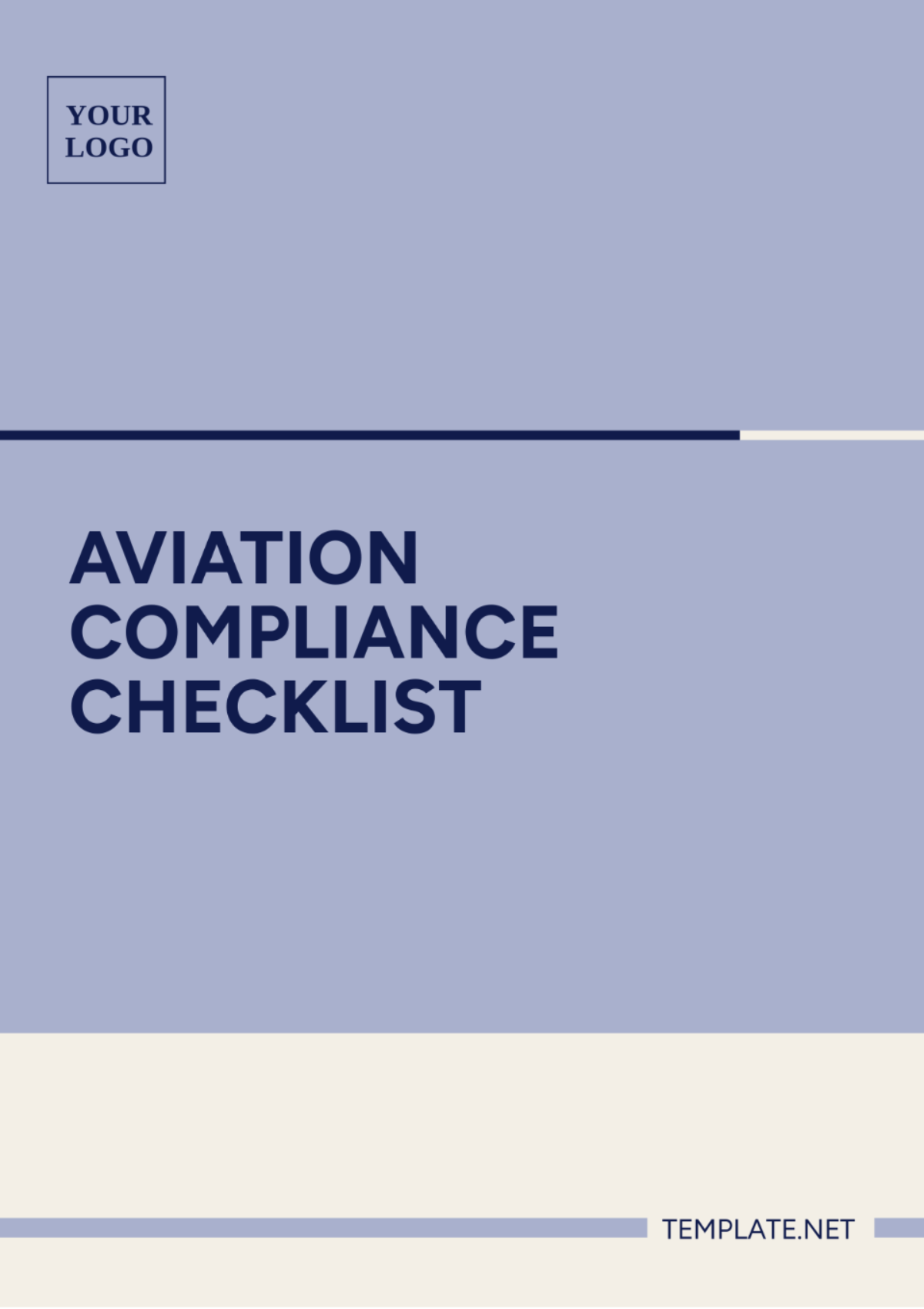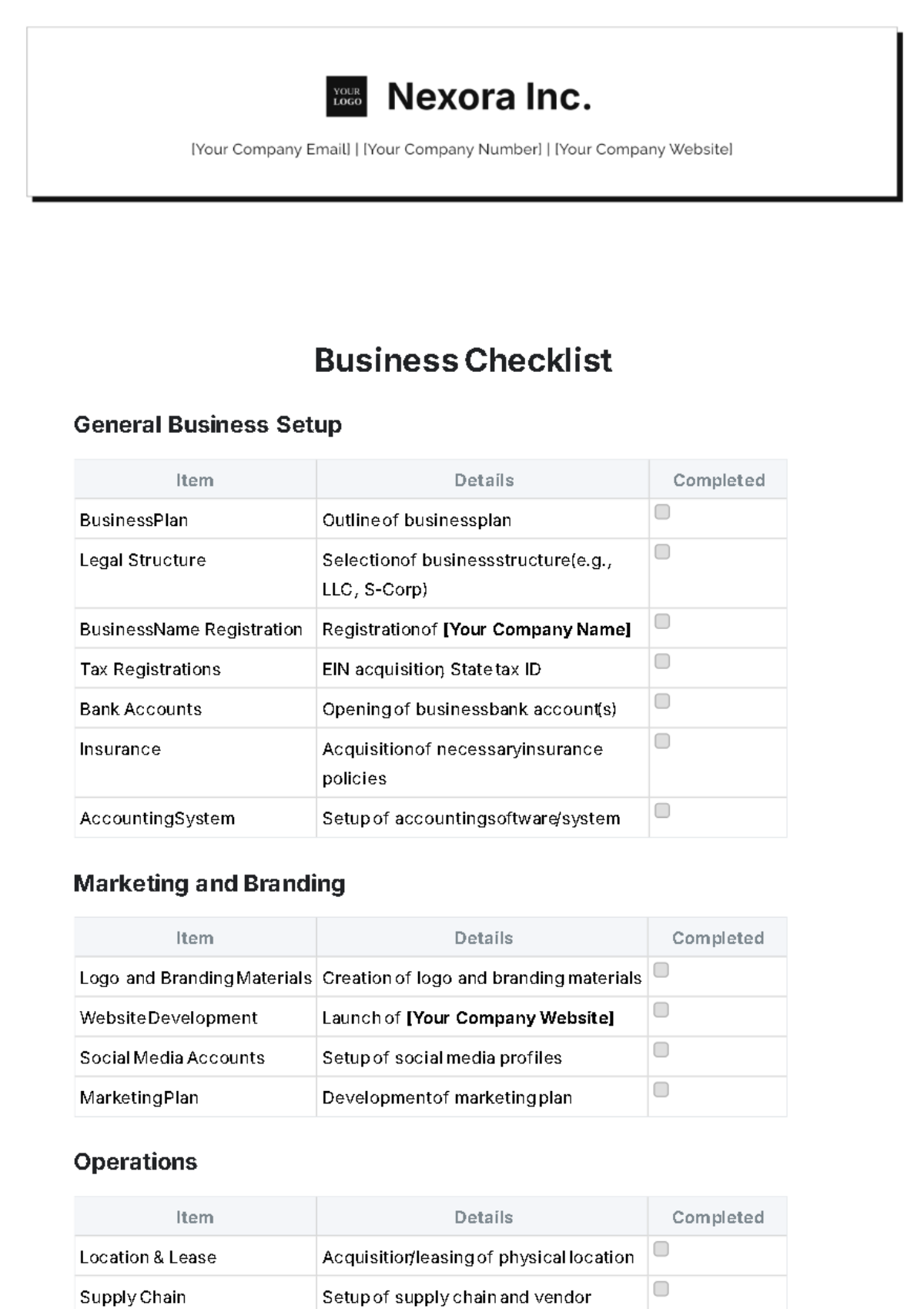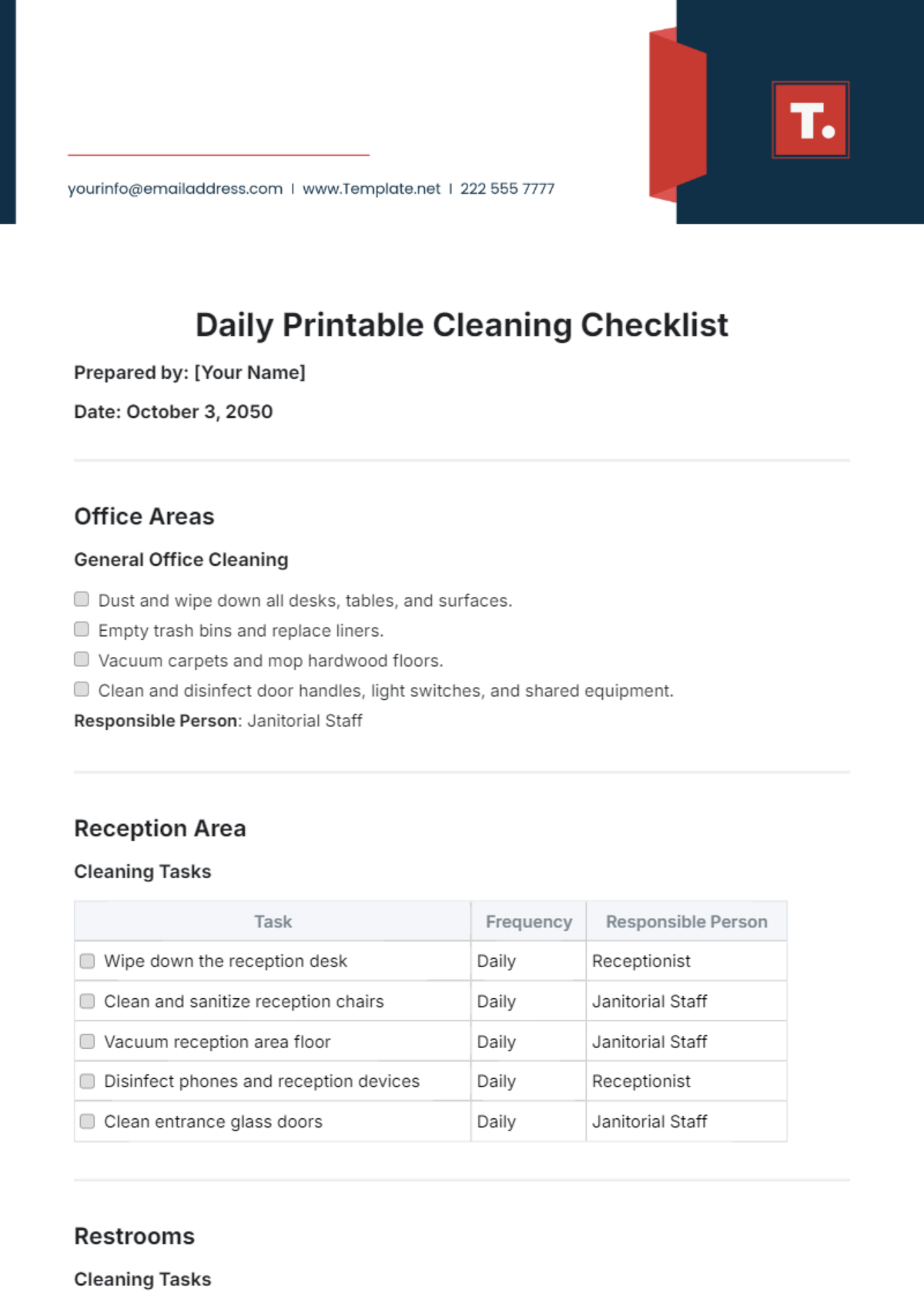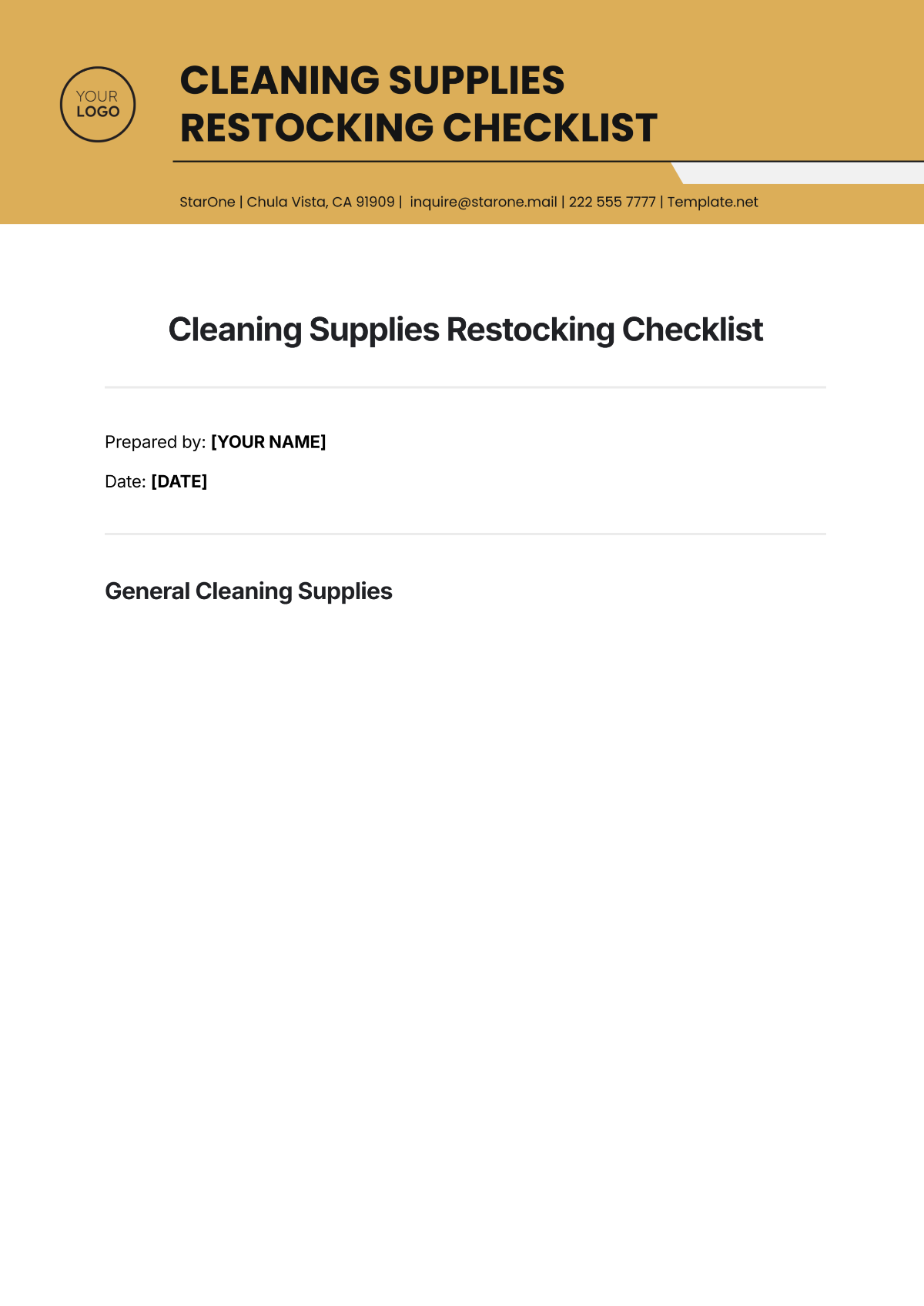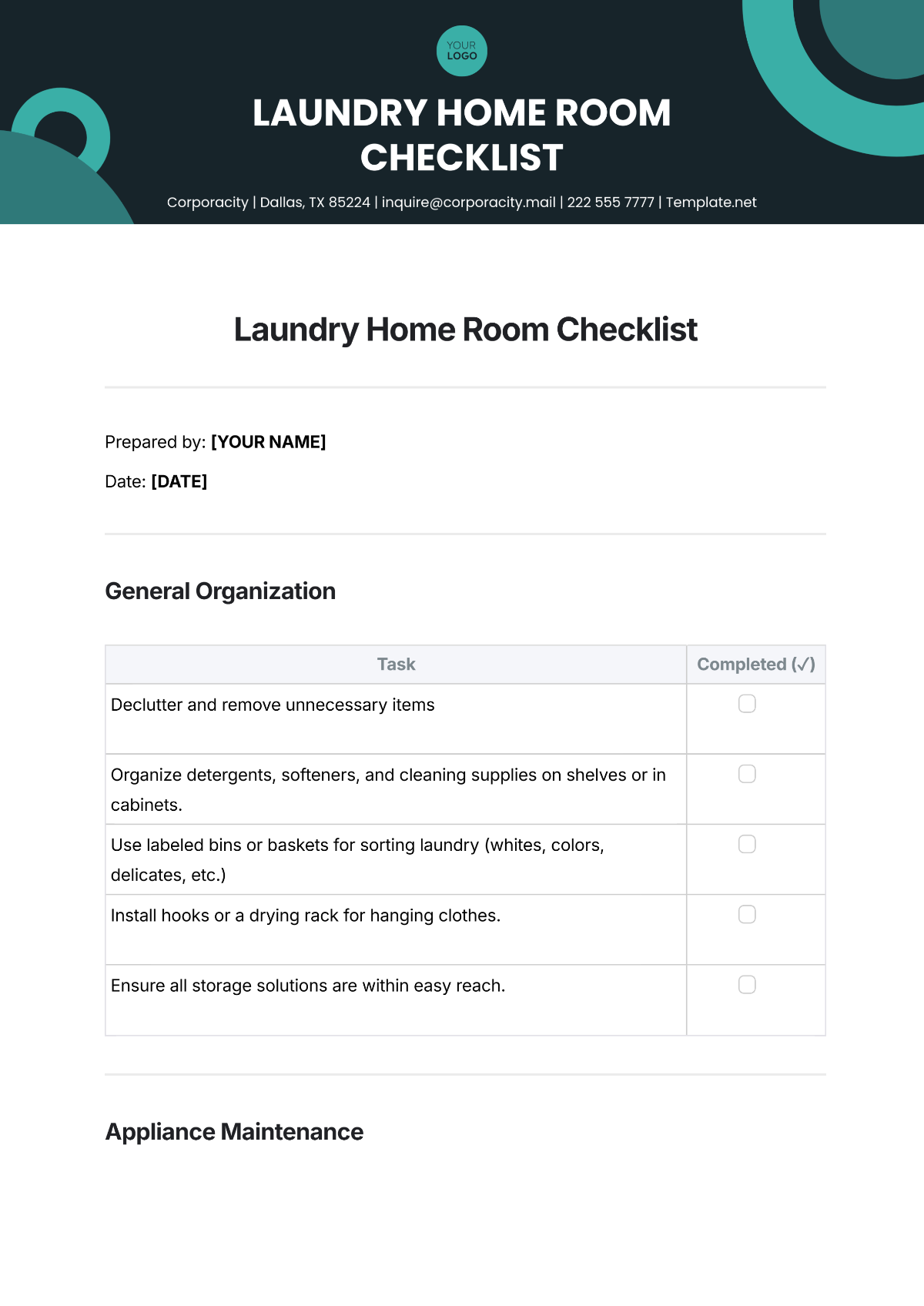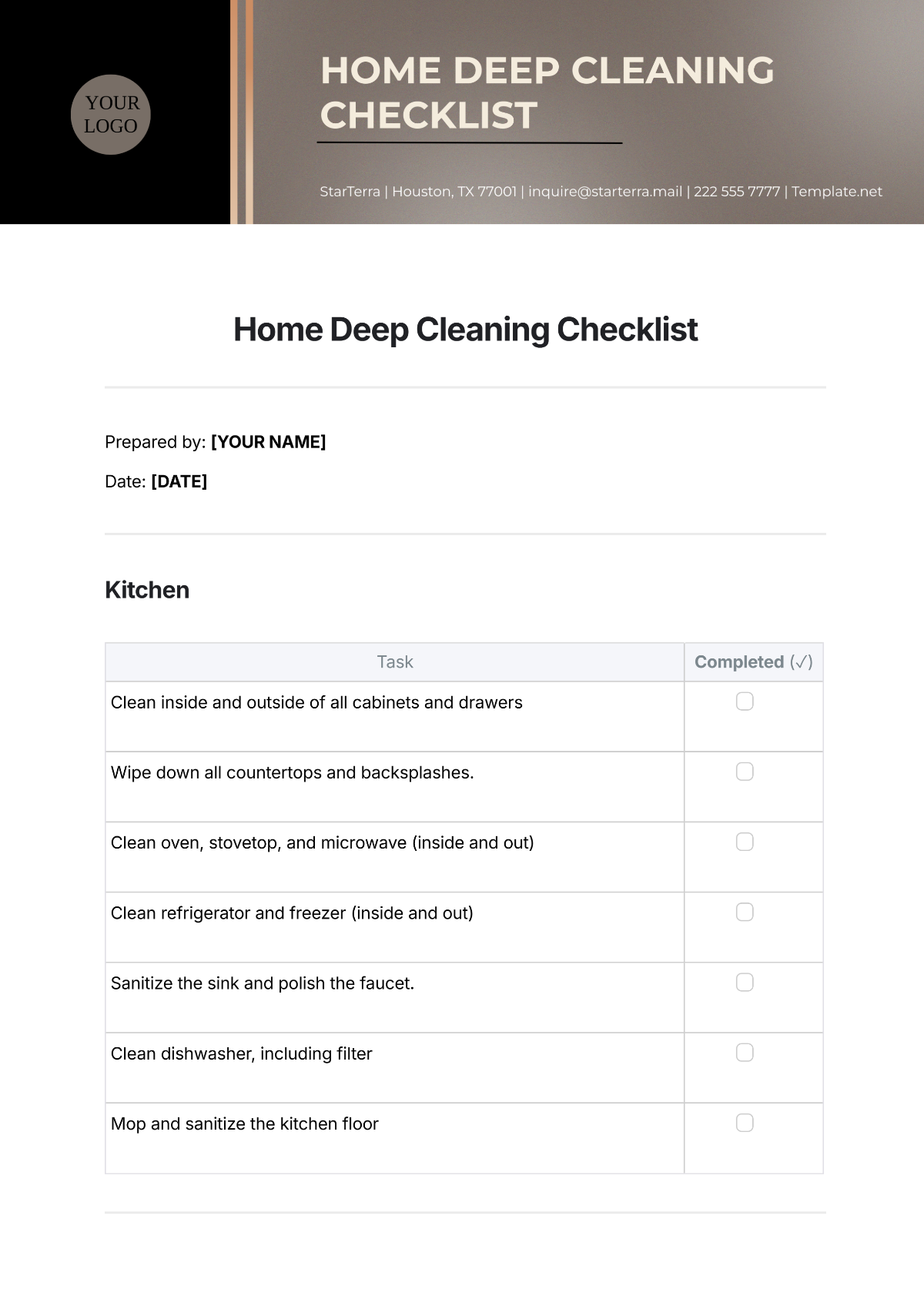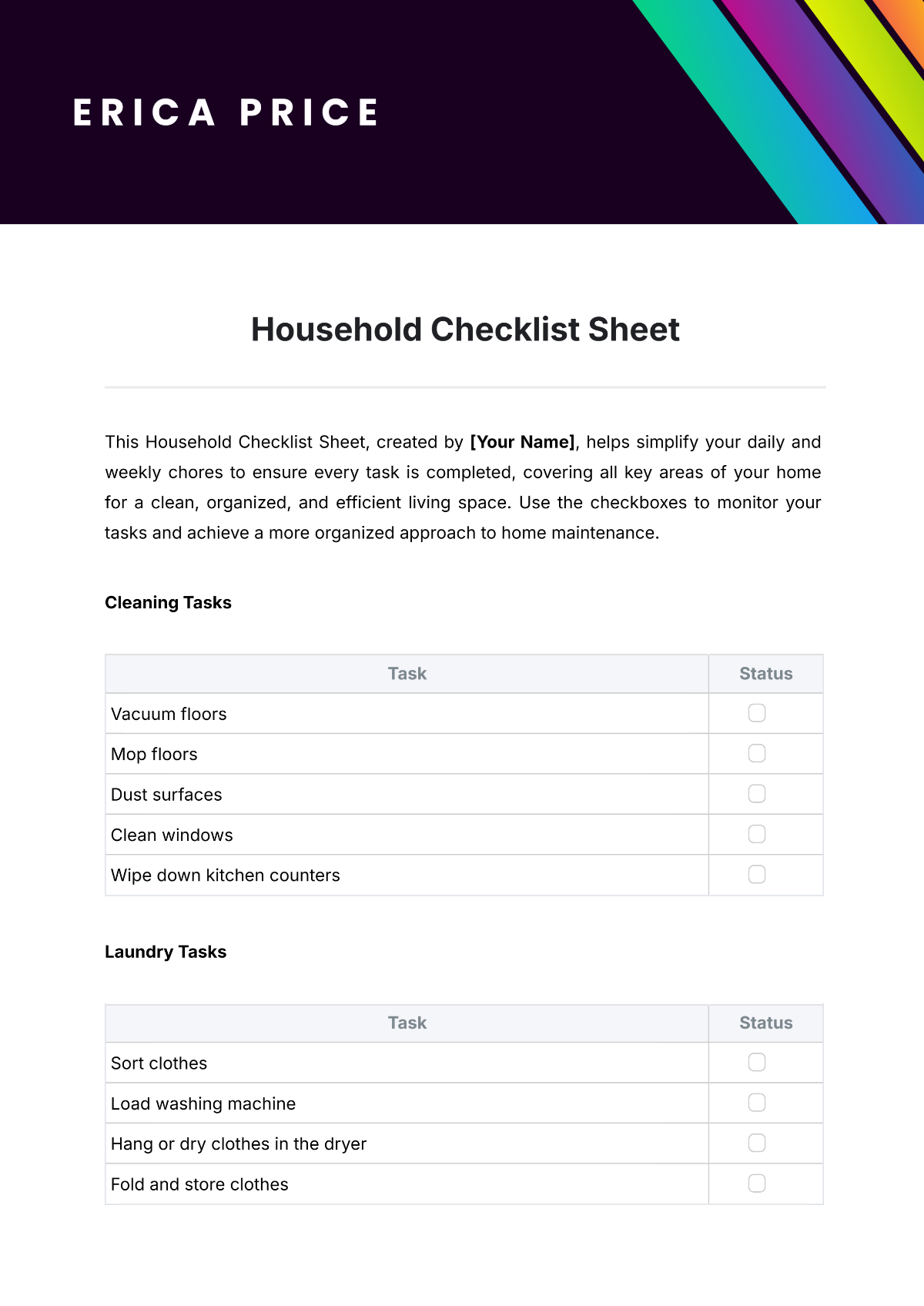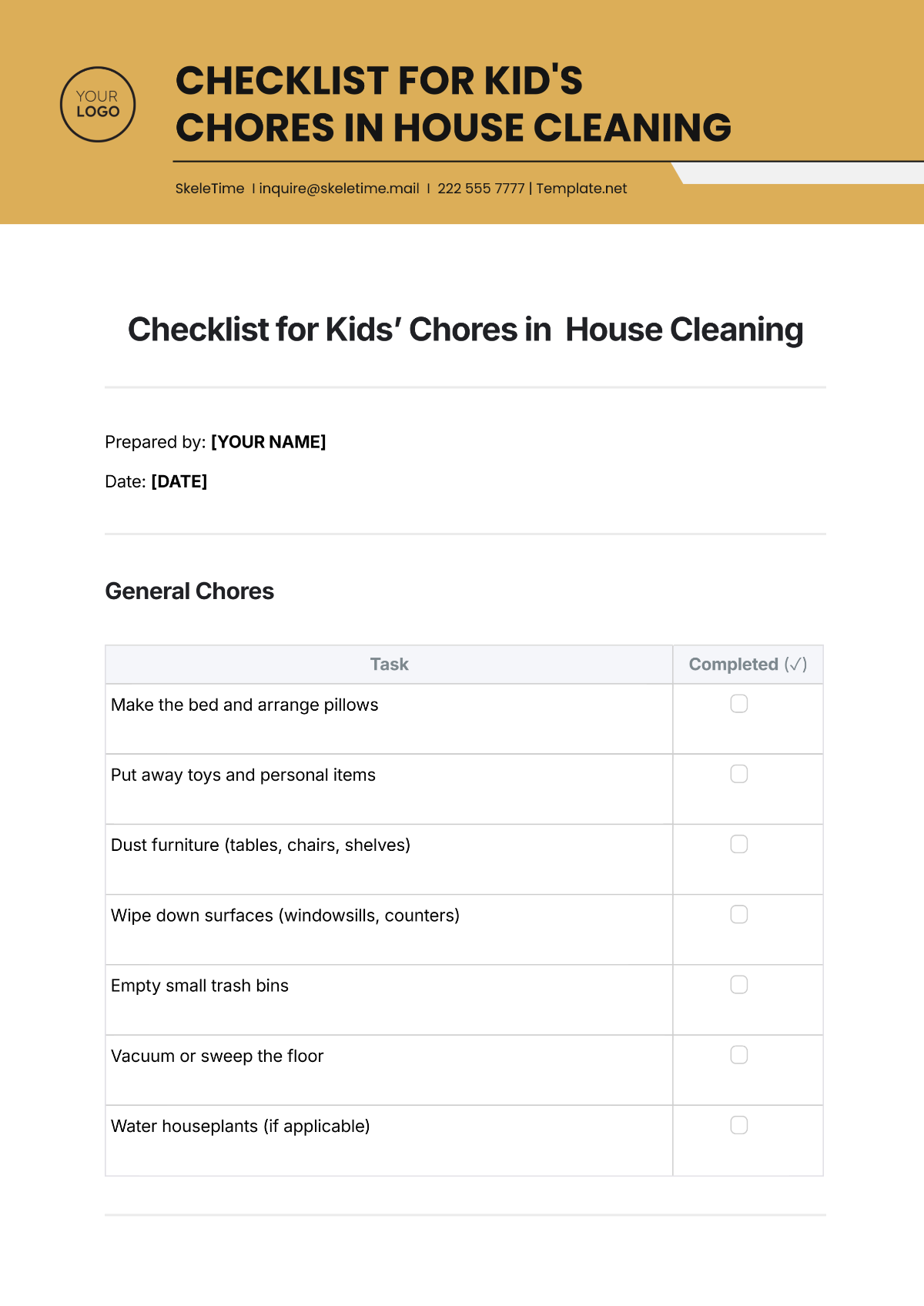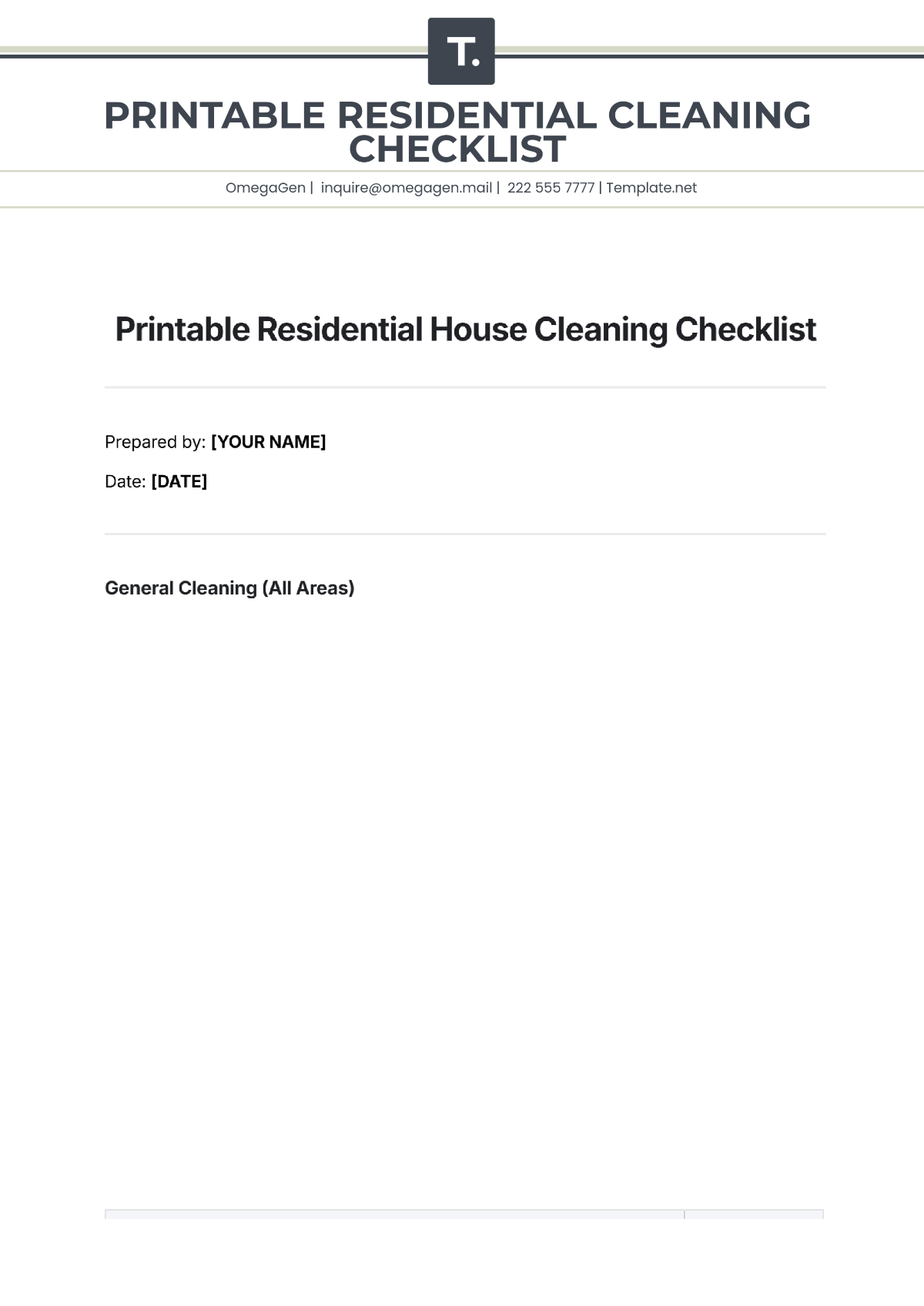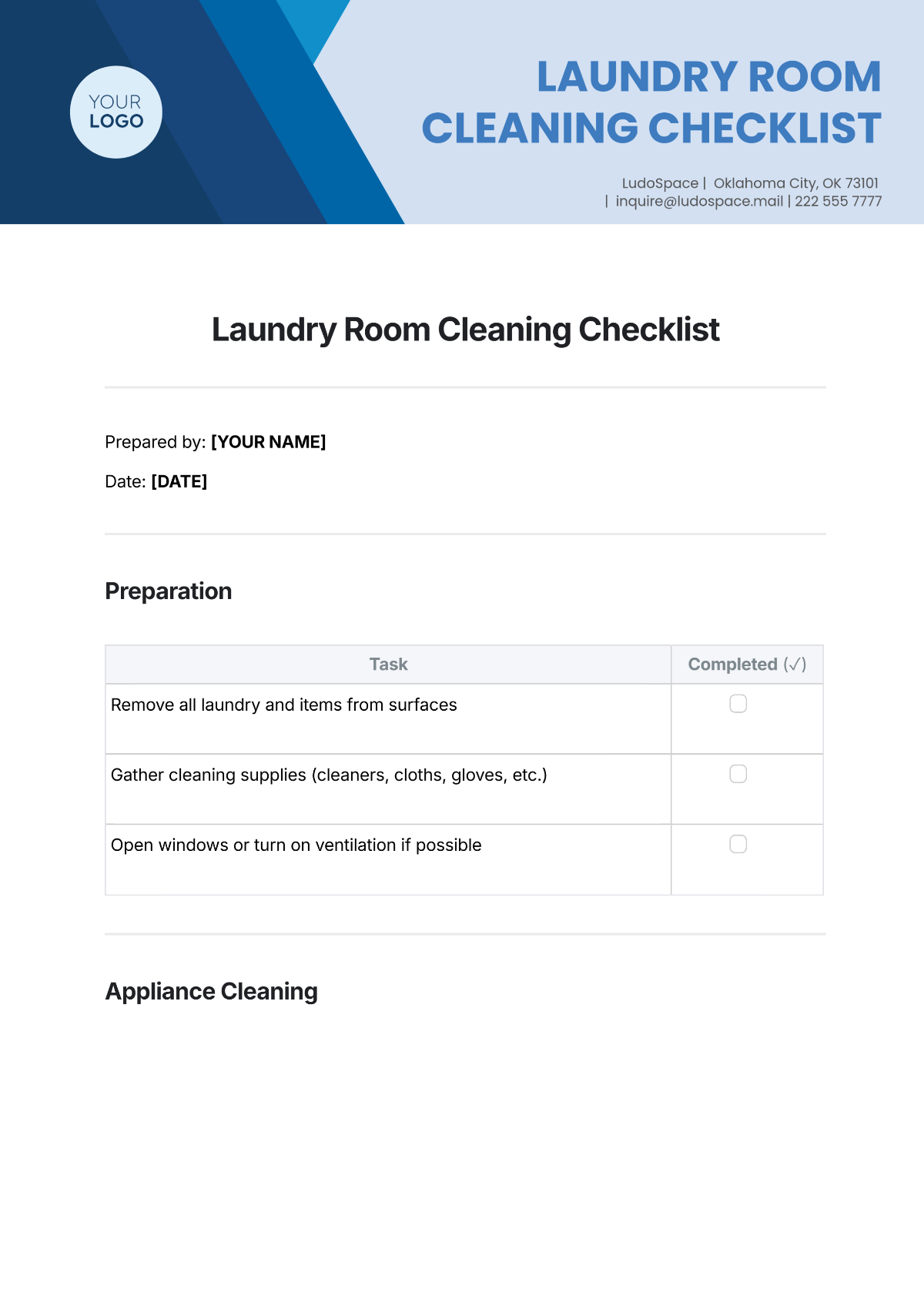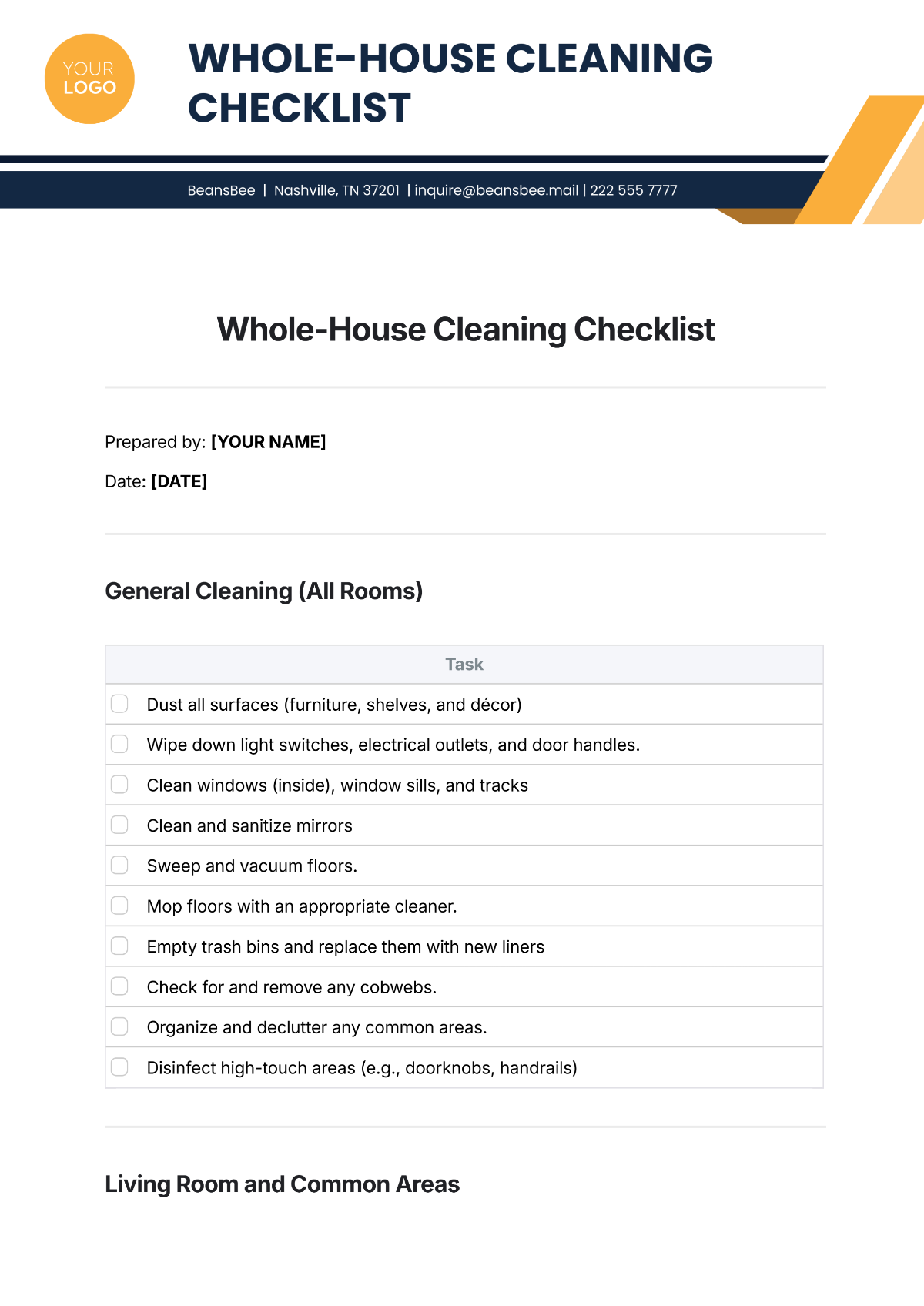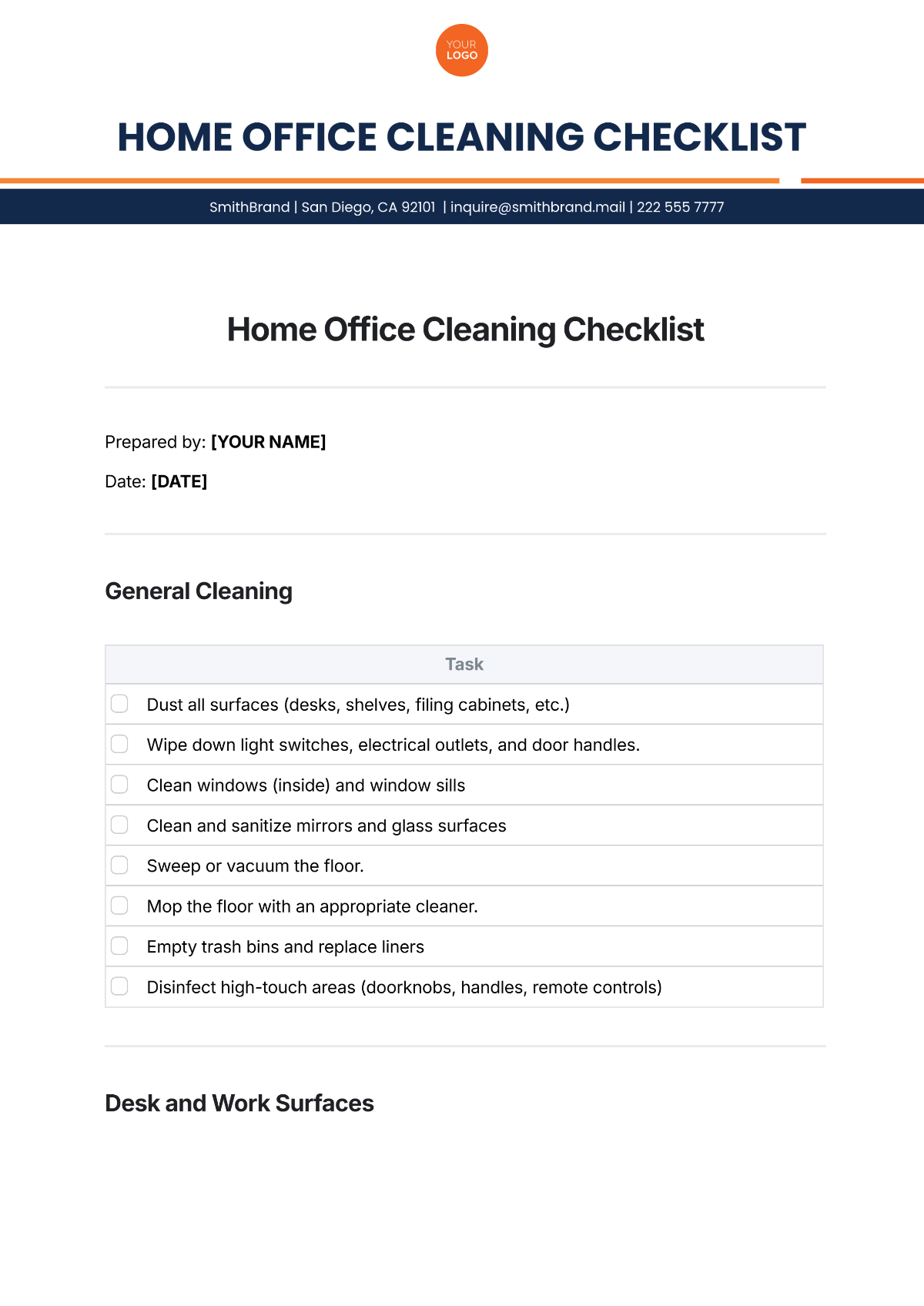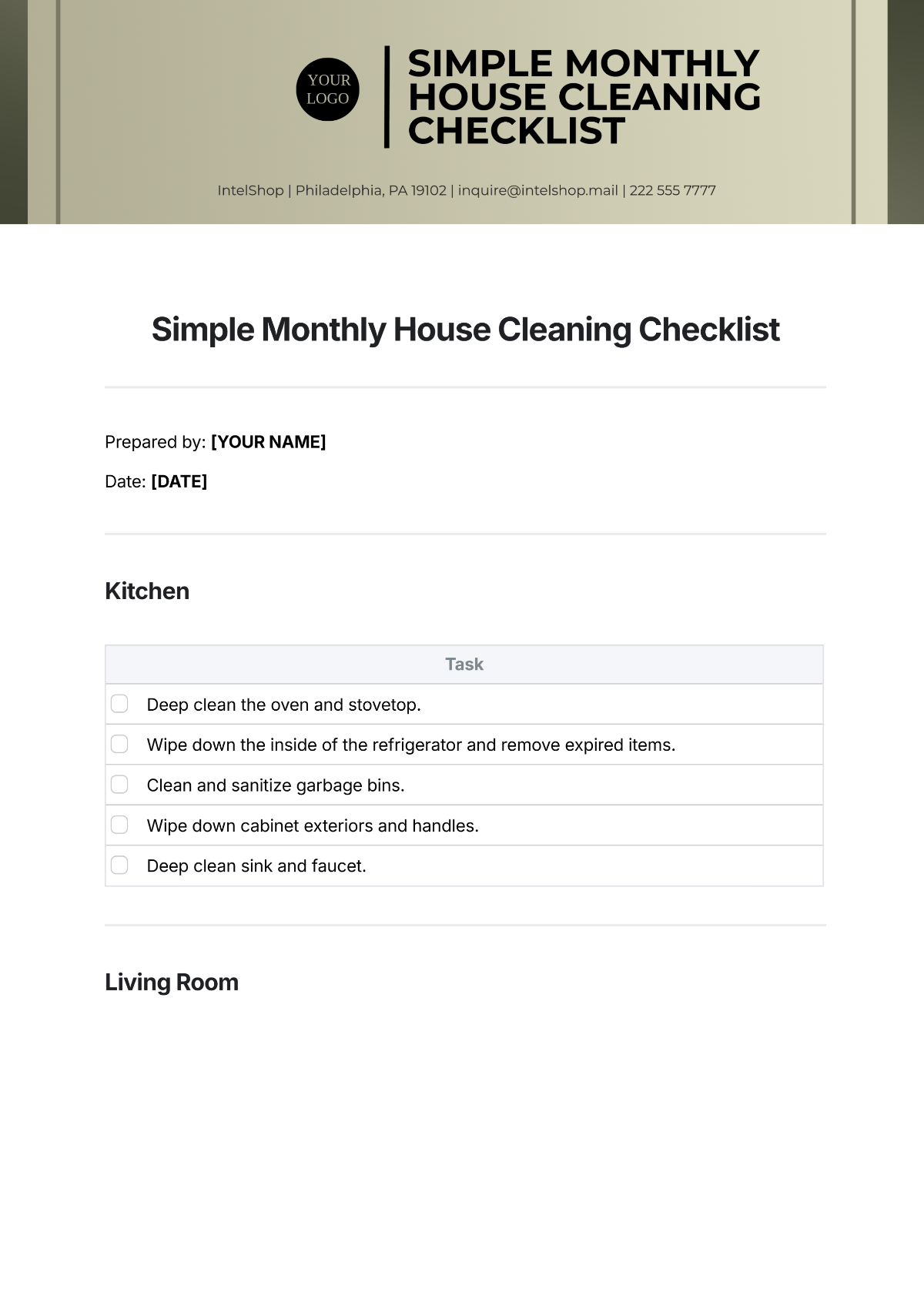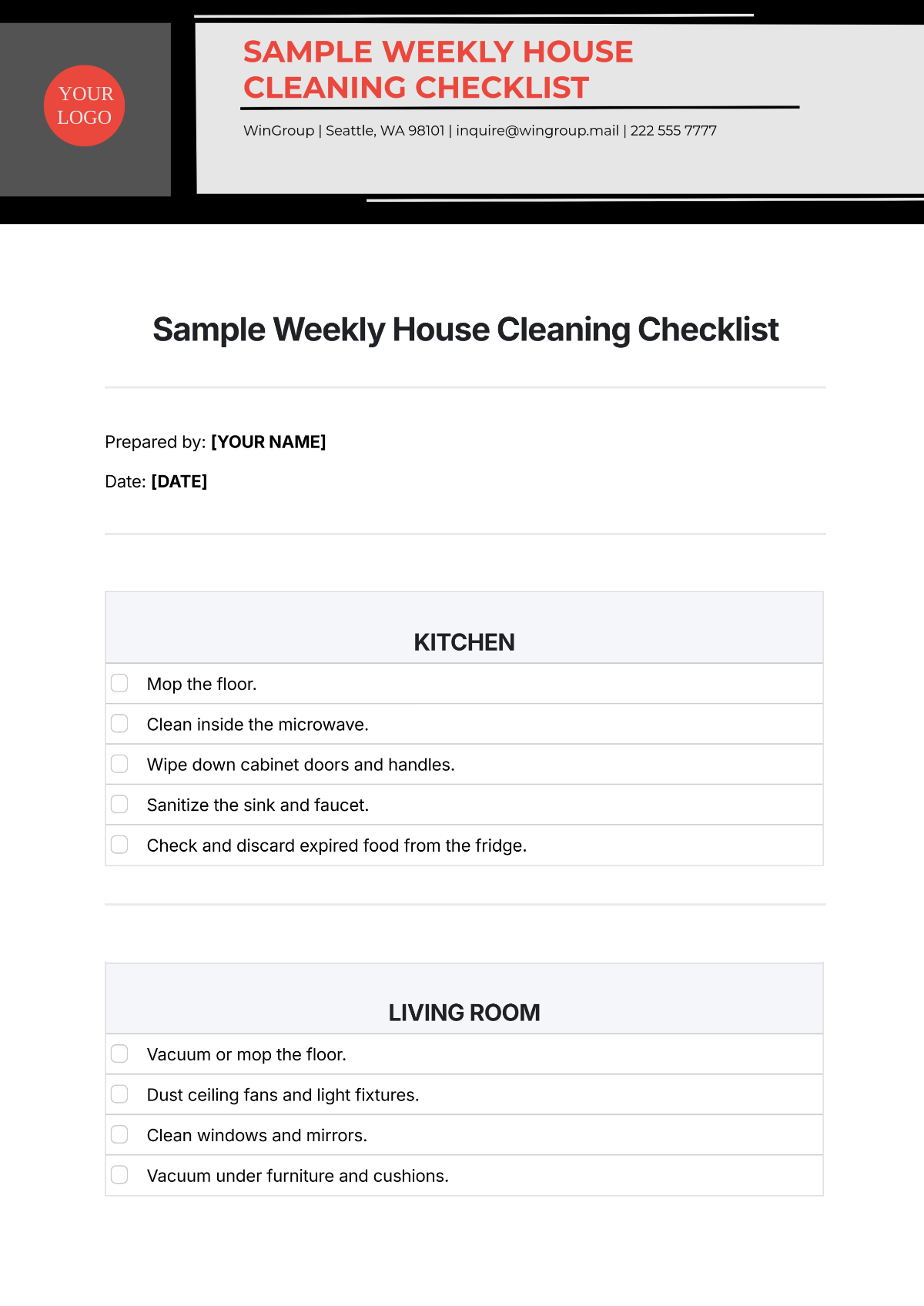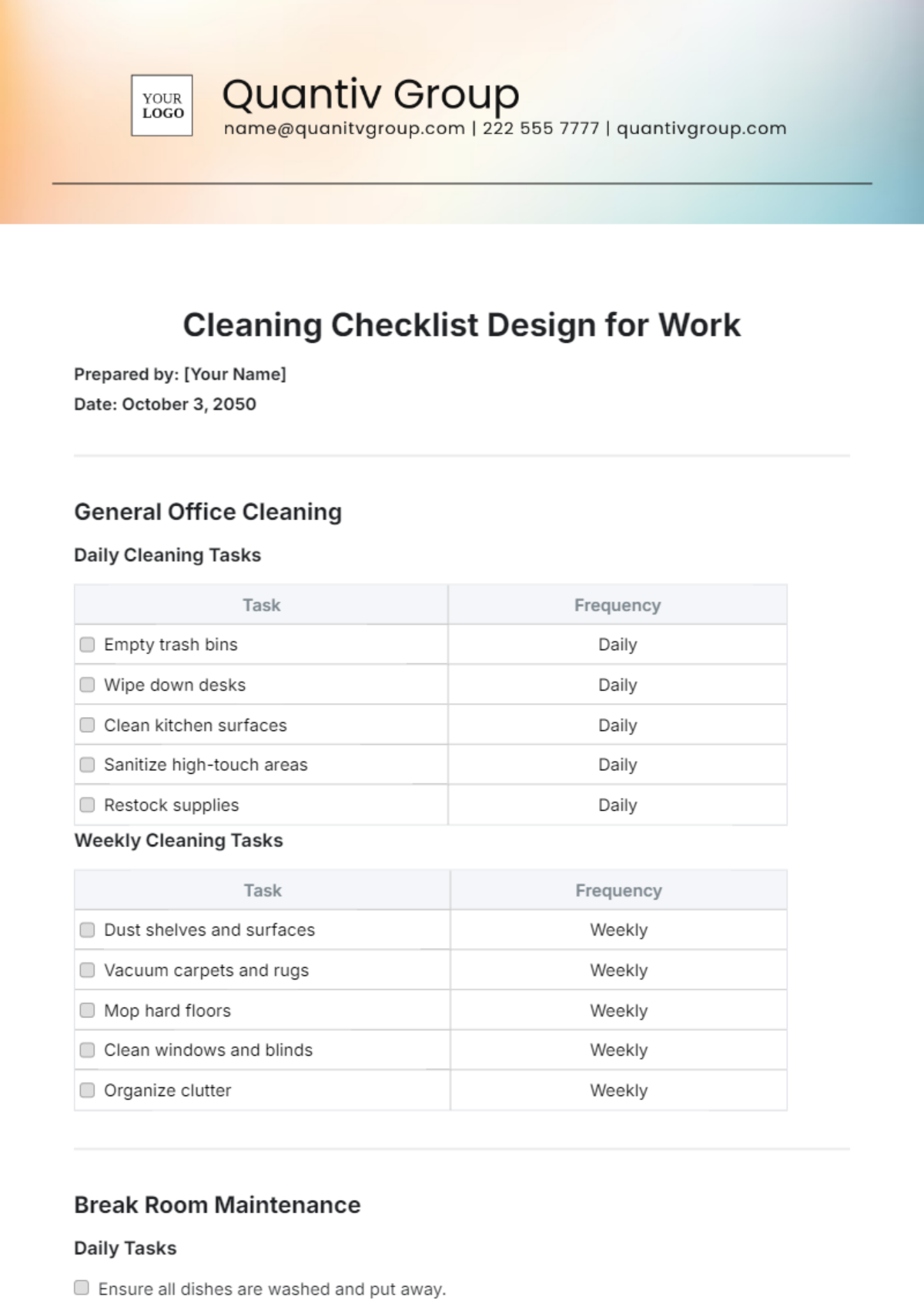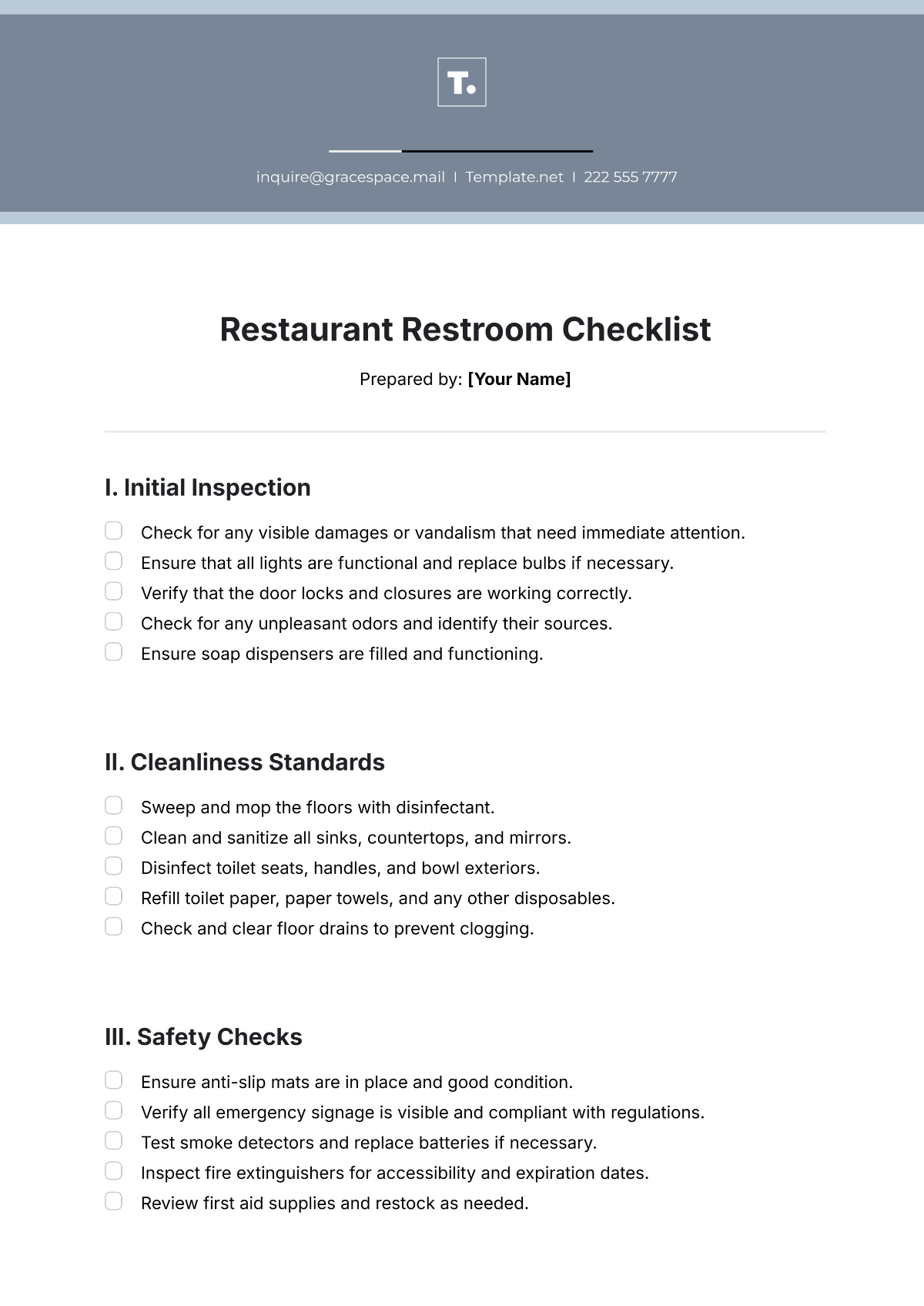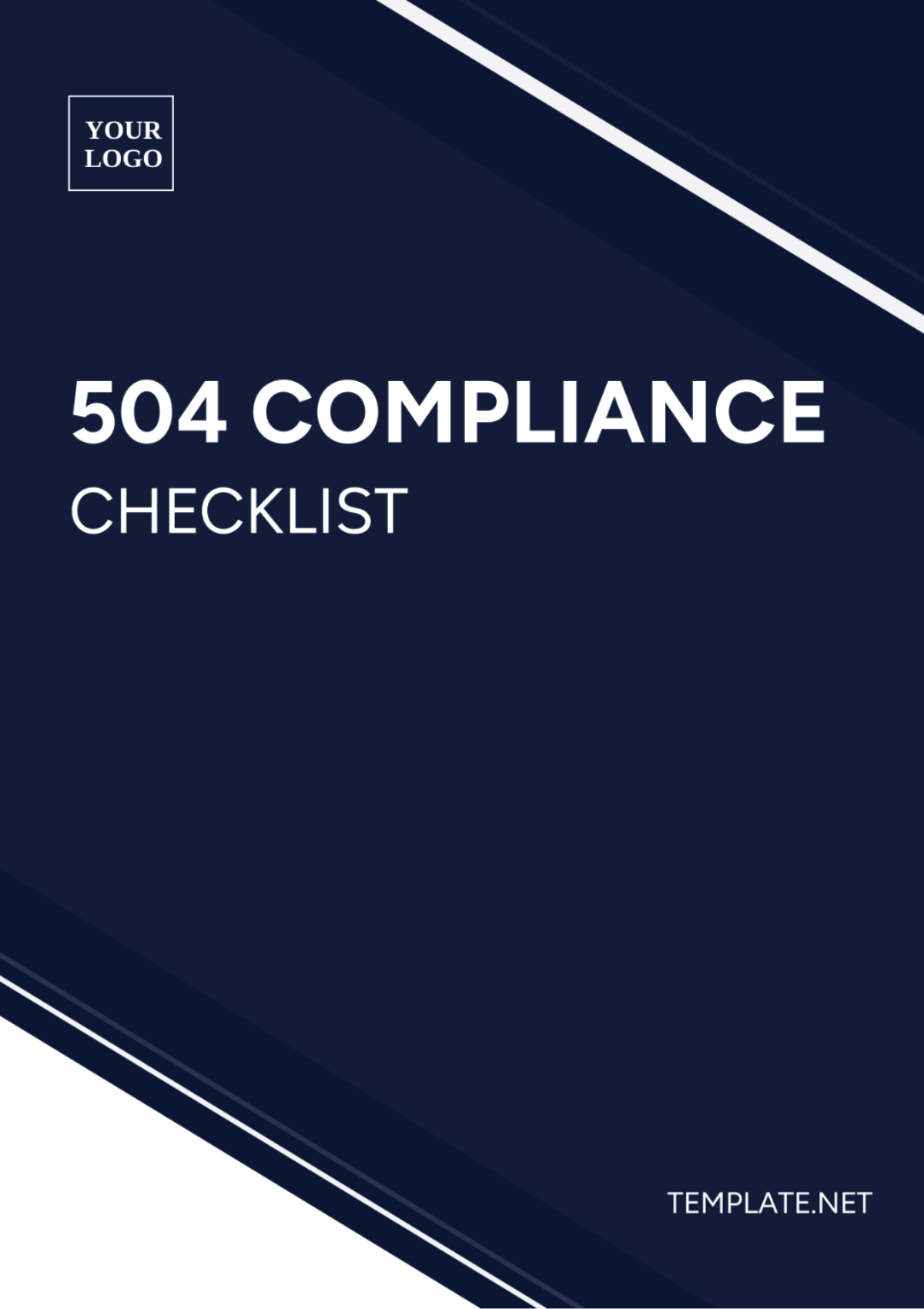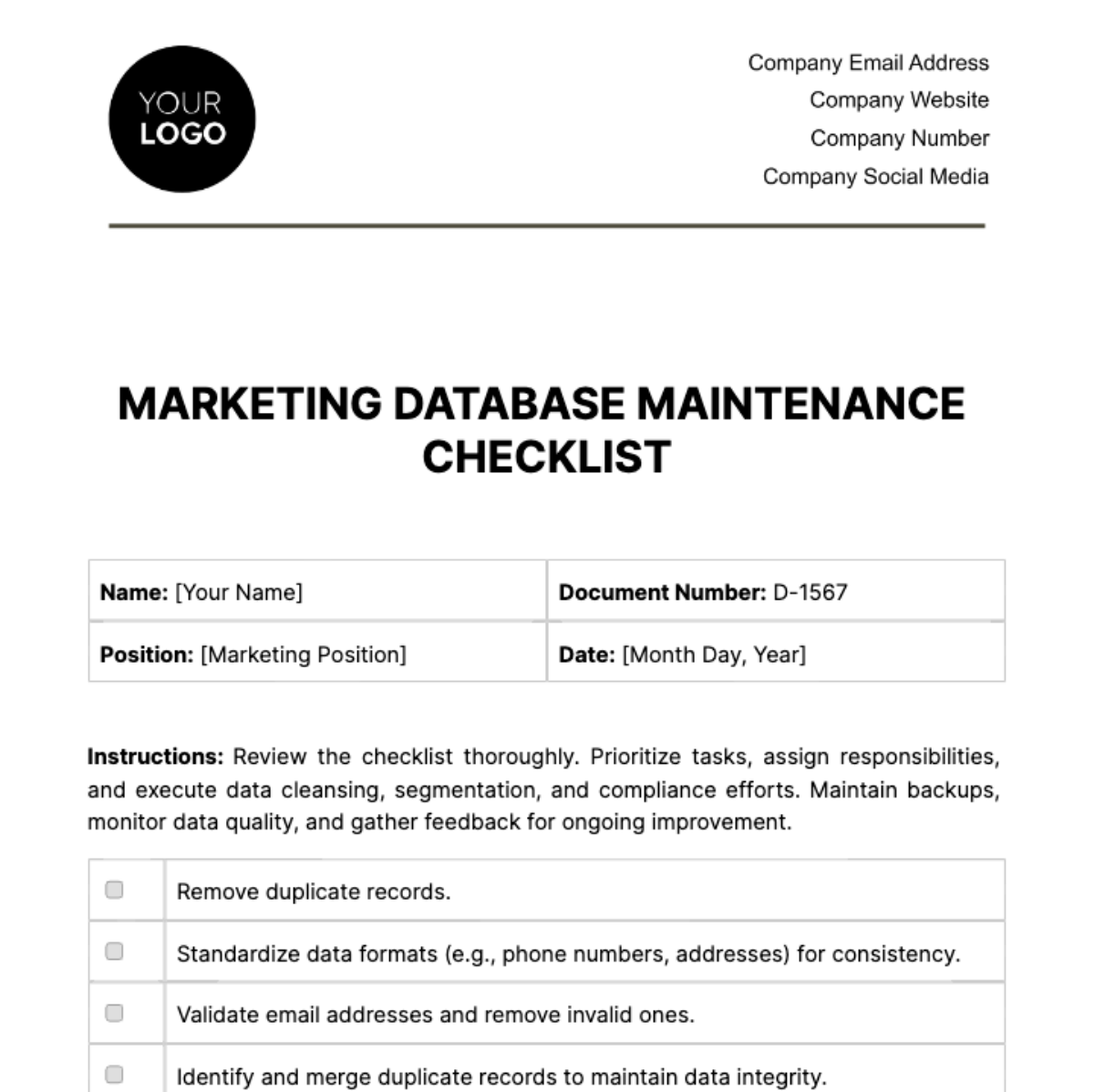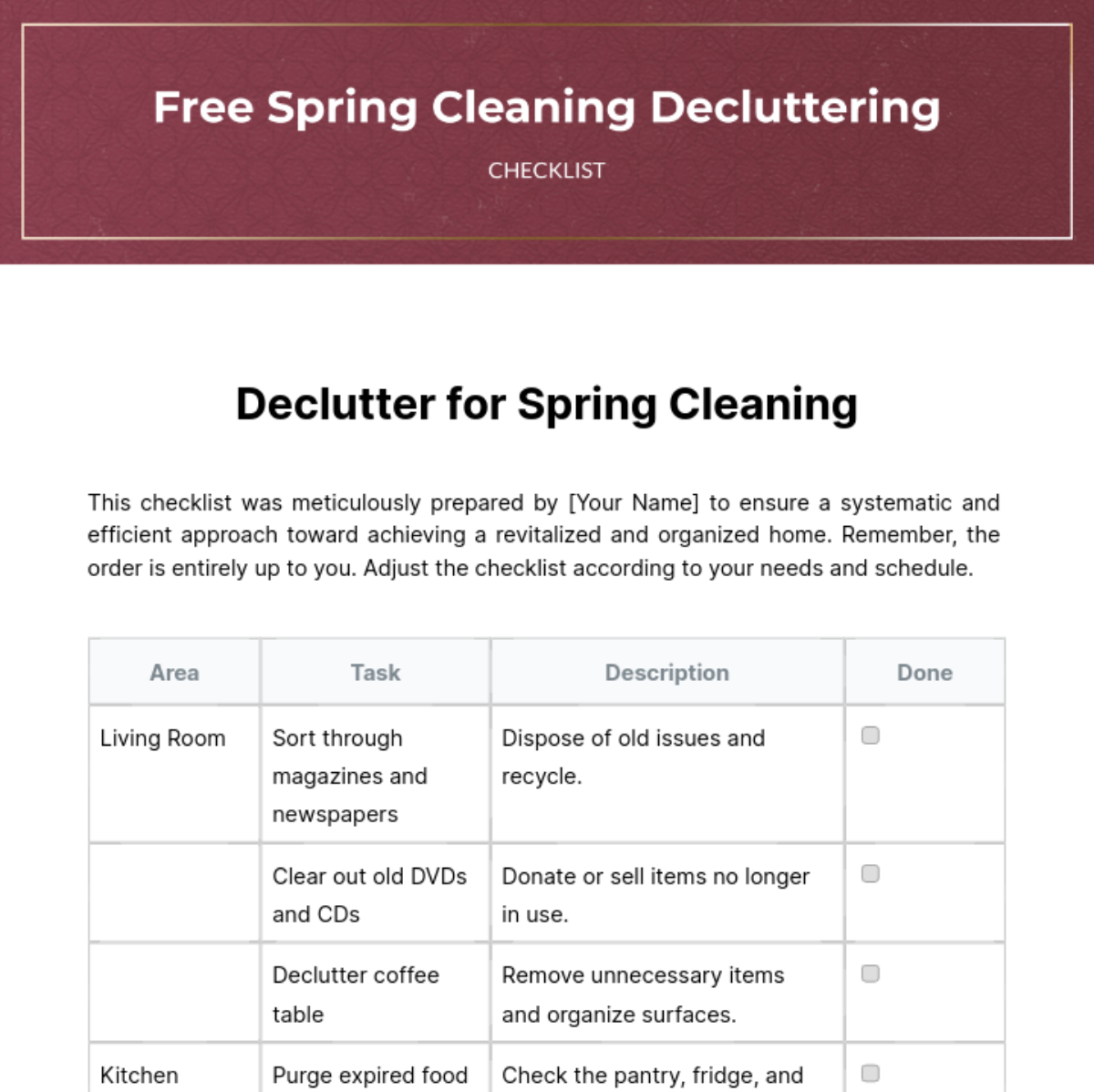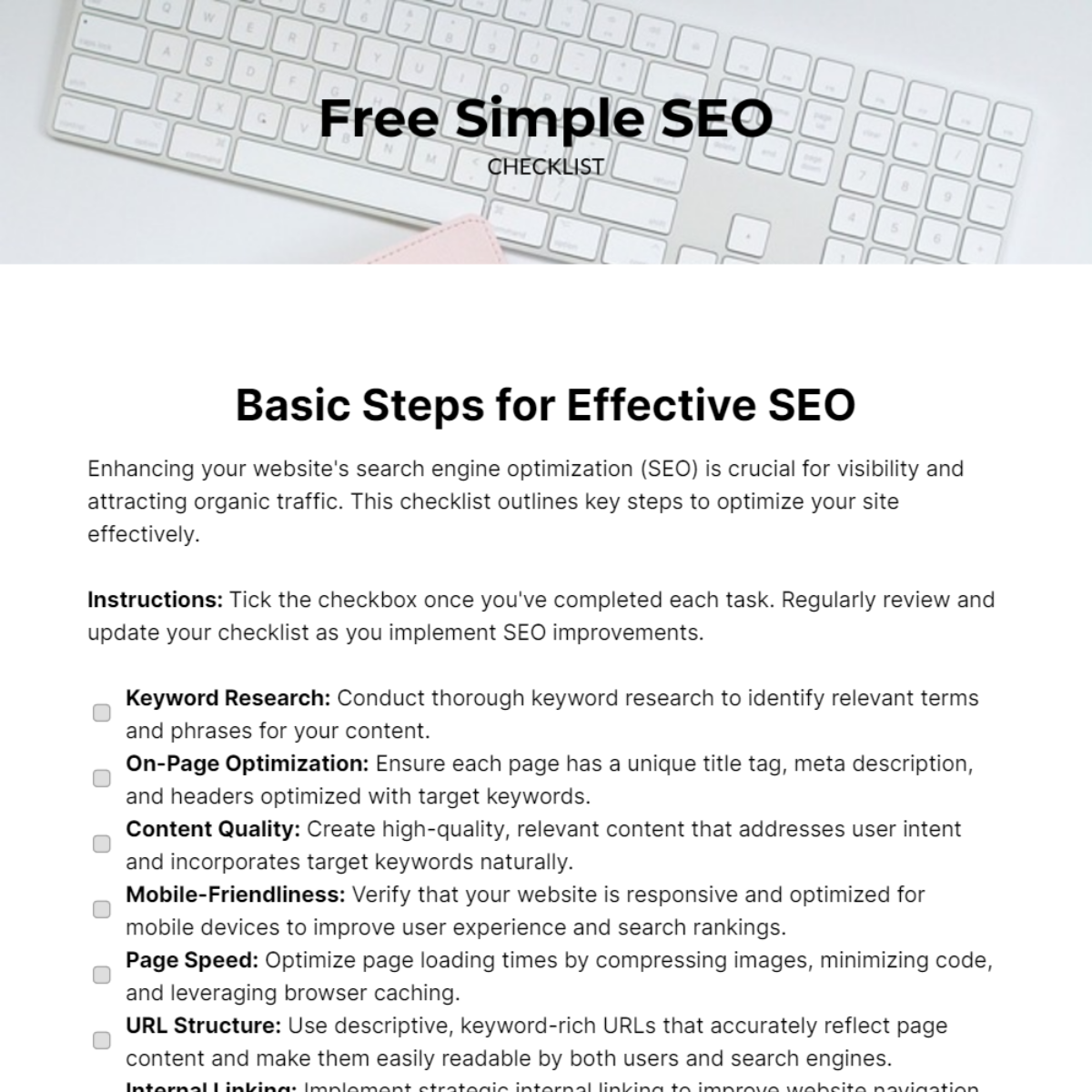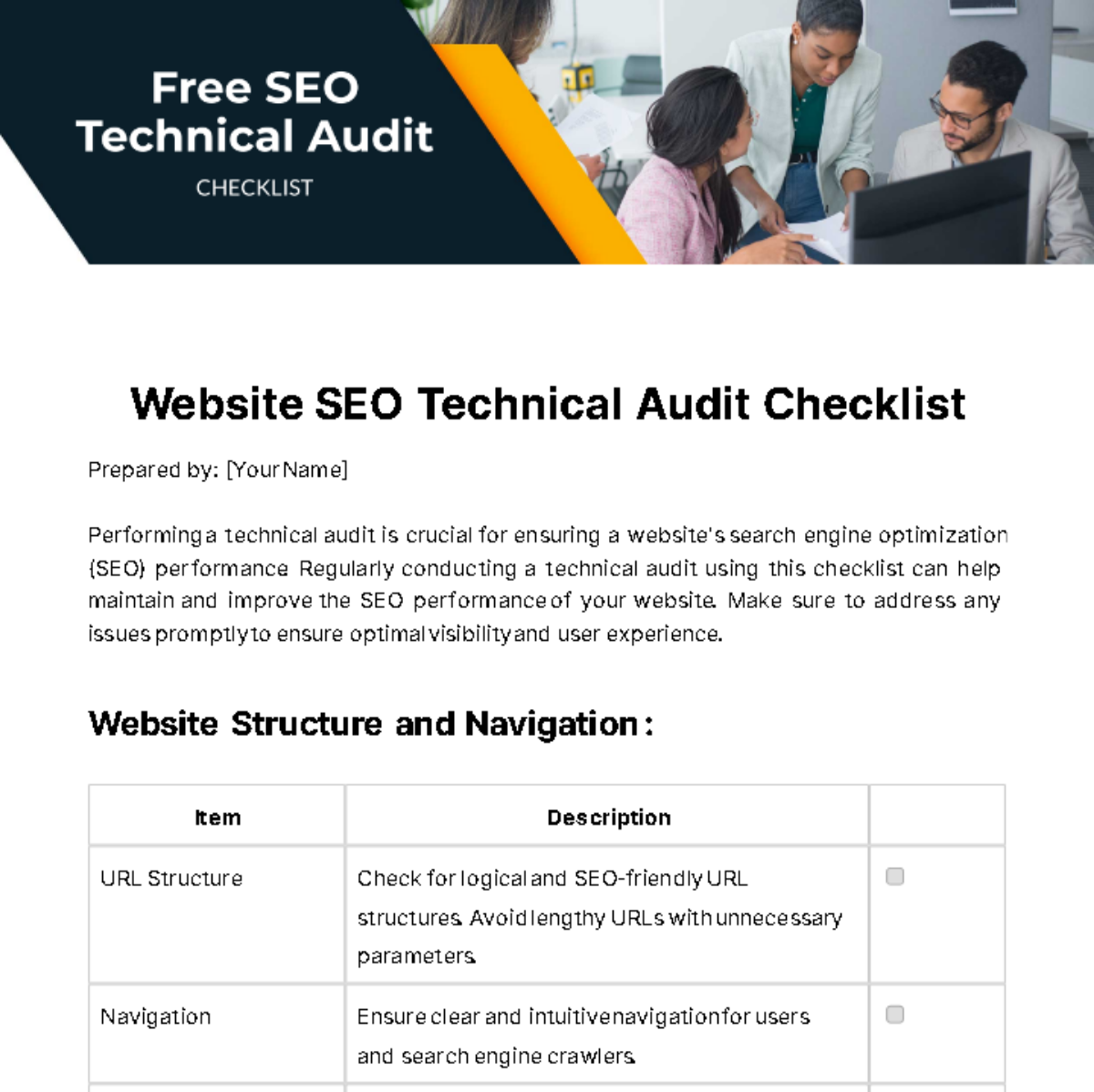Website SEO Technical Audit Checklist
Prepared by: [Your Name]
Performing a technical audit is crucial for ensuring a website's search engine optimization (SEO) performance. Regularly conducting a technical audit using this checklist can help maintain and improve the SEO performance of your website. Make sure to address any issues promptly to ensure optimal visibility and user experience.
Website Structure and Navigation:
Item | Description | |
URL Structure | Check for logical and SEO-friendly URL structures. Avoid lengthy URLs with unnecessary parameters. | |
Navigation | Ensure clear and intuitive navigation for users and search engine crawlers. | |
Internal Linking | Review internal linking structure for relevance and optimization. |
Indexing and Crawling:
Item | Description | |
Robots.txt | Verify the robots.txt file to ensure it allows the crawling of essential pages and disallows irrelevant ones. | |
XML Sitemap | Confirm XML sitemap existence and accuracy. Ensure it includes all essential pages. | |
Crawl Errors | Identify and resolve crawl errors using Google Search Console or similar tools. |
Website Speed and Performance:
Item | Description | |
Page Load Speed | Measure and optimize page load speed using tools like Google PageSpeed Insights. | |
Mobile Optimization | Ensure the website is optimized for mobile devices to enhance user experience. | |
Server Response Time | Check server response time and optimize if necessary for faster loading times. |
Technical SEO Factors:
Item | Description | |
HTTPS Protocol | Ensure the website is served over HTTPS for security and better SEO rankings. | |
Canonicalization | Implement canonical tags to prevent duplicate content issues. | |
Structured Data Markup | Utilize structured data markup (Schema.org) to enhance search engine visibility. | |
HTML/XML Sitemap | Check for the presence and accuracy of HTML/XML sitemaps for both users and search engines. |
Website Security:
Item | Description | |
Security Certificates | Verify SSL/TLS certificates for secure browsing and SEO benefits. | |
Malware Detection | Regularly scan for malware and security vulnerabilities. | |
User Data Protection | Ensure compliance with GDPR and other data protection regulations. |
Content Optimization:
Item | Description | |
Keyword Usage | Analyze keyword usage throughout the website and optimize content accordingly. | |
Content Quality | Evaluate content quality, relevance, and uniqueness for better search rankings. |
